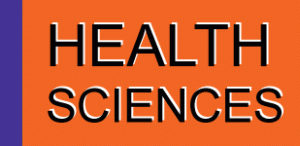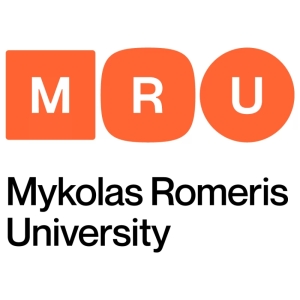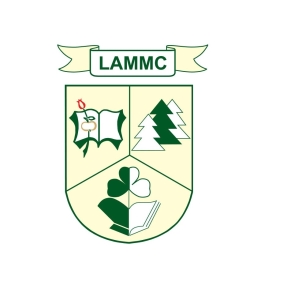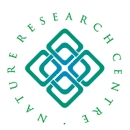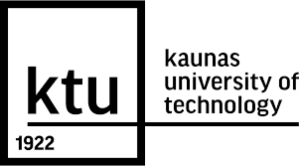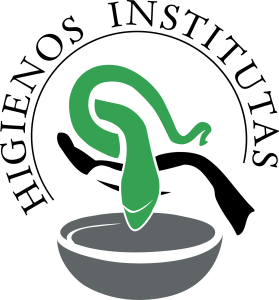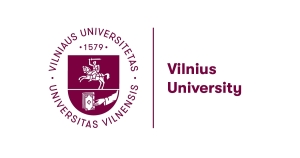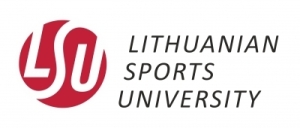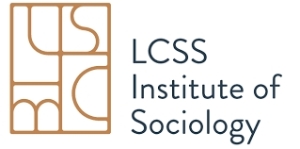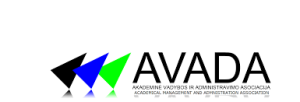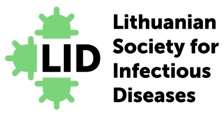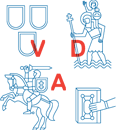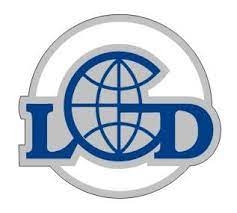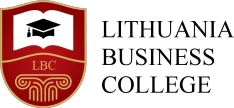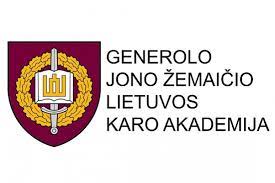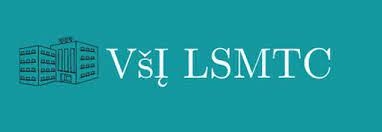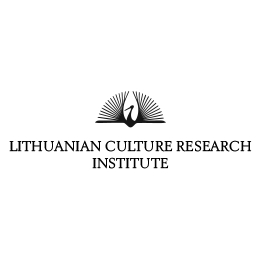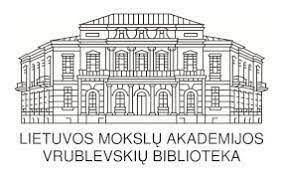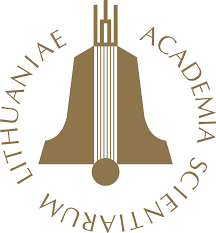This publication includes entries on 27 publishers and the Association of Lithuanian Serials, arranged according to their date of joining the Association. It covers the majority of the most active Lithuanian scholarly journals publishers.
This publication was initiated and its preparation financed by the Association of Lithuanian Serials.
Please find the PDF of the publication in English.
Please find the PDF of the publication in Lithuanian.
DOI of the English edition https://doi.org/10.5200/lmpa2023en
DOI of the Lithuanian edition https://doi.org/10.5200/lmpa2023
© 2023 Association of Lithuanian Science Periodicals.
Text and illustrations are licenced under CC-BY 4.0. This means that we grant the right to digitise, make available on the Internet, perform any actions upon, translate into other languages, and adapt all the information contained in this document.
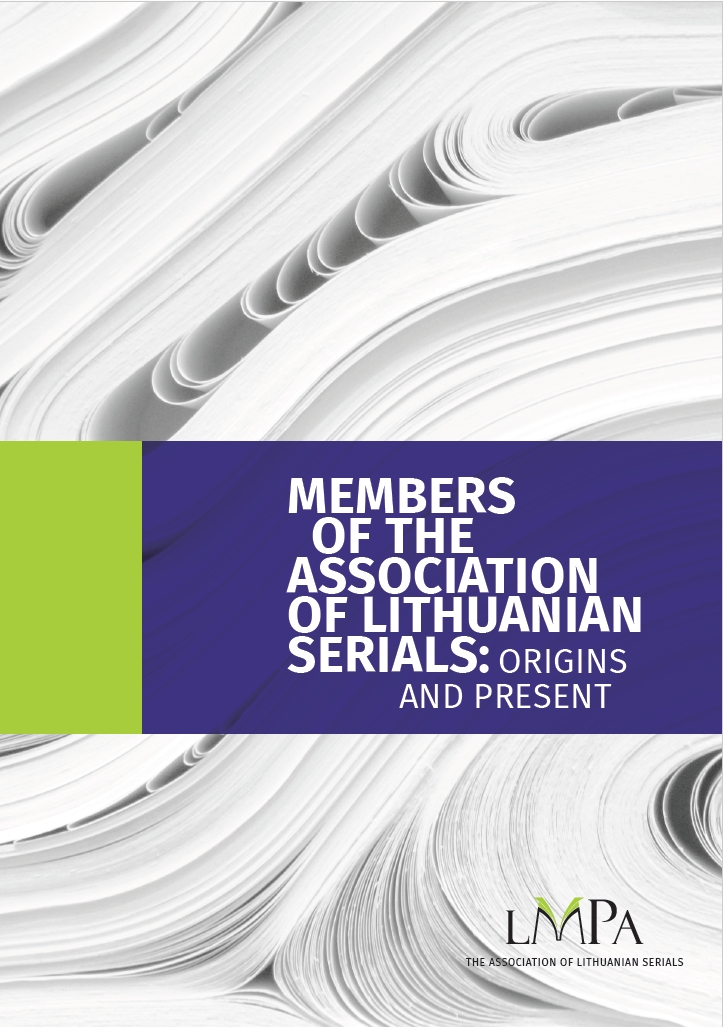
The genesis of modern Lithuanian scholarly journals can be traced back to the 1960s. Some journals have been continuously published for over five decades, and their publishers also have histories spanning decades. Since the restoration of independence, the Lithuanian publishing landscape has undergone significant changes, with new publishers and journals emerging, and some journals have been discontinued. In 2020, 225 scholarly journals were issued by Lithuanian publishers. However, detailed information about these publishers, both newcomers and established ones, is often hard to find. Usually, one can only obtain the date of establishment of the publishing house, a list of its journals, and its current management. Information about the founders, the reasons behind its establishment, its history, and the people who contributed to its growth is harder to obtain, yet it is crucial for understanding the evolution of science in Lithuania – after all, scholarly journals are key players in the scholarly landscape, as they disseminate scholarly results.
When we began collecting information about Lithuanian publishers of scholarly journals, we found that even the publishers themselves often lacked records of significant dates, persons, and decisions. We designed a questionnaire to collect data on the inception of their publishing activities, founders, major milestones, objectives, management, changes and reorganisations, publications, achievements, evaluations, and future plans.
The encyclopaedic-style texts in this publication were prepared by Dr Vytautas Volungevičius based on the information provided by the publishers. This information was reviewed with the publishers at the end of 2023.
This publication includes entries on 27 publishers and the Association of Lithuanian Serials, arranged according to their date of joining the Association. It covers the majority of the most active Lithuanian scholarly journals publishers.
Text and illustrations are licenced under CC-BY 4.0. This means that we grant the right to digitise, make available on the Internet, perform any actions upon, translate into other languages, and adapt all the information contained in this document.
This publication was initiated and financed by the Association of Lithuanian Serials.
The Association of Lithuanian Serials (Lietuvos mokslo periodikos asociacija – LMPA) was established in 2010, initiated by Eleonora Dagienė. The founders of the Association were Prof. Dr habil. Raimundas Kirvaitis, Prof. Dr habil. Edmundas K. Zavadskas, Prof. Dr Borisas Melnikas, Dr Audrius Banaitis, VILNIUS TECH, Lithuanian Public Administration Training Association, and the Training Centre of the Ministry of Finance of the Republic of Lithuania.
The main objectives of the LMPA are: 1) to promote the advanced publishing of scholarly journals, thereby helping the Lithuanian scholarly journals present the Lithuanian science to the global scholarly community, and 2) to provide qualified assistance (training, seminars, conferences) to the publishers of Lithuanian scholarly journals, thus aiming to enhance the scholarly level of published articles and increase the quality and visibility of the journals.
The LMPA closely cooperates with the Committee on Education and Science of the Parliament of the Republic of Lithuania, the Lithuanian Academy of Sciences, the Research Council of Lithuania, the Lithuanian Research Library Consortium, and the Scholarly Publishing Cluster. The Association grows each year as more and more publishers of Lithuanian scholarly journals join. As of October 2023, the Association has 33 members publishing 158 scholarly journals.
The first president of the LMPA was R. Kirvaitis, the Vice-Rector of VILNIUS TECH. From 2010 to 2013, E. Dagienė served as the Chairperson of the LMPA Board, and, during this time, the Board members were Prof. Dr habil. Albinas Marčinskas (Vilnius University), E. K. Zavadskas (VILNIUS TECH), E. Dagienė (VILNIUS TECH), B. Melnikas (VILNIUS
TECH), and Prof. Dr E. Chlivickas (Training Centre of the Ministry of Finance of the Republic of Lithuania). A. Banaitis (VILNIUS TECH) exercised the financial control of the Association.
From 2013 to 2016, Prof. Dr Inga Žalėnienė (Mykolas Romeris University) served as the Chairperson of the LMPA Board, with the Board members including Dr Leonas Balaševičius (Kaunas University of Technology), Dr Darius Gerulaitis (Šiauliai University), Dr Rita Vaičekauskaitė (Klaipėda University), and E. K. Zavadskas (VILNIUS TECH). The auditor E. Chlivickas (Training Centre of the Ministry of Finance of the Republic of Lithuania) carried out the financial control of the Association. E. Dagienė (VILNIUS TECH) held the position of the LMPA President. R. Vaičekauskaitė (Klaipėda University) was the Chairperson of the LMPA Board from 2016 to 2019. The Board members during this time were L. Balaševičius (Kaunas University of Technology), Prof. Dr Vincentas Lamanauskas (Scientific methodical centre Scientia Educologica), Tatjana Švec- Kurapkė (Mykolas Romeris University), and E. K. Zavadskas (VILNIUS TECH). The financial control of the Association was maintained by the auditor E. Chlivickas (Training Centre of the Ministry of Finance of the Republic of Lithuania). The President of LMPA was E. Dagienė (VILNIUS TECH).
From 2019 to 2022, the Chairperson of the LMPA Board was Adriana Kviklienė (Kaunas University of Technology). The Board members were Dr Vincas Grigas (Vilnius University), Nomeda Gudelienė (Mykolas Romeris University), Prof. Dr Dalia Marija Stančienė (LOGOS), and Asta Zarauskienė (Lithuanian Sports University). The financial control of the Association was performed by the auditor Prof. Dr Agota Giedrė Raišienė (Academic Association of Management and Administration). The President of LMPA was V. Grigas (Vilnius University).
Since 2022, A. Kviklienė (Kaunas University of Technology) has been the Chairperson of the LMPA Board. The current Board members are V. Grigas (Vilnius University), R. Vaičekauskaitė (Klaipėda University), Dr Zigmas Kairaitis (Lithuanian Geographical Society), and A. Zarauskienė (Lithuanian Sports University). The financial control of the Association is carried out by the auditor Dr Miroslav Šeibak (VTeX). The President of the LMPA is V. Grigas (Vilnius University).
Activities of The Association of Lithuanian Serials
The LMPA has been open to all publishers of Lithuanian scholarly journals since its inception. The LMPA seeks to grant its members access to advanced plagiarism detection technology, to collectively discuss the peer- review process, the authorship of scholarly articles, and other issues relevant to the scholarly community and the publication of scholarly findings. At the same time, the aim is to include the most well-known international authorities on the issues under consideration in the discussions.
A considerable part of the LMPA’s activities has been focused on enhancing the international visibility and recognition of Lithuanian scholarly journals.
To achieve these goals, the following activities were carried out:
The Catalogue of Lithuanian Scholarly Journals published between 2011 and 2014, was presented at the Frankfurt and London book fairs in both Lithuanian and English.
In 2011, four events were organised at the Vilnius Book Fair 2011, the EIFL project Open Journal Systems – Opportunities for the Development of Lithuanian Scholarly Journals was carried out, there were organised: the conference Tools for Science Metrics: What Do We Know about Them and How Do We Use Them?, the seminar Aspects of Publishing in Scholarly Journals: Citation and Plagiarism, and the lecture-discussion How to Prepare a Manuscript of a Scholarly Article and Select the Most Appropriate Journal for It held at various institutions.
From 2012 to 2013, the thematic issue of the scholarly journal Scholarly and Technical Development on Topical Issues in Scientometrics and Bibliometrics was presented. International conferences The Importance of Unique Identifiers for a Scientist, an Institution, a Country and Scientometrics: Scholarly Publication and Its Value and the discussion Publishing Scholarly Journals: Prevention of Plagiarism and Publishing Ethics were organised.
The project International Dissemination of Lithuanian Scholarly Journals through Crossref Membership, funded by the Research Council of Lithuania, was implemented. The main objective was to promote Crossref innovations (DOI, CrossCheck, etc.), which are internationally recognised. In 2011, at the Vilnius Book Fair, the LMPA signed a contract with Crossref, and from 2012, became the sole Crossref agent in Lithuania. This membership of LMPA in Crossref has been beneficial for Lithuanian publishers of scholarly journals. In 2014, the international conference Technologies That Are Changing Science Assessment was initiated and organised.
In 2015, the international conference National Scholarly Journals: Quantity and Quality and a Crossref workshop were organised in Vilnius.
In 2016, the event How to Prepare a Successful Scholarly Publication? was held, along with the international conference Lithuanian Journals and Contemporary Scholarly Communication. Additionally, the book Re- viewing and Manuscript Management in Scholarly Journal Publishing (ISBN 978-609-8149-01-2) was translated into Lithuanian and presented with the participation of the author of the book, Dr Irene Hames. The publication Lithuanian Scholarly Journal Ranking 2016, initiated by E. Dagienė and Prof. Dr habil. Rūta Petrauskaitė, gained attention. Their efforts were supported by I. Žalėnienė, the Chairperson of the LMPA Board, and L. Balaševičius, Prof. Dr habil. Linas Balčiauskas, and R. Vaičekauskaitė. In 2017, the discussion Quality of Peer Review in Scholarly Journals – Can It Be Measured? was organised.
In 2018, the discussion Publishing of Scholarly Journals in Lithuania: Challenges and Opportunities was organised.
In 2019, a practical discussion on scholarly journal publishing aimed at improving technological platforms for publishing scholarly journals in Lithuania was initiated. The Open Access Scholarly Publishing Conference 2019 was organised, and a declaration On Lithuanian Scholarly Periodicals Publishing After 2020 was prepared.
In 2020, the workshop The Aspect of Copyrights in Developing Open Ac- cess was organised. The LMPA had been involved in the activities of the Scholarly Publishing Cluster. A declaration On Active Participation in Defining and Registering Open Access Scholarly Journals was prepared.
In 2021, the workshop Using Digital Identifiers in Increasing the Dissemination of Scholarly Publications was organised. Financial support from the Research Council of Lithuania was secured to enable the use of the iThenticate plagiarism detection service. In the same year, LMPA became a Crossref sponsoring organisation. Upon LMPA’s initiative, a study and a report titled Lithuanian Scholarly Periodicals in 2020 – Publishing Technologies, Open Access, Databases were prepared and published.
In 2022, a workshop was organised as a satellite event of the Crossref Annual Conference – Dissemination of Scientific Journals: The Importance of Professional Publishing Software and Metadata. Concurrently, funding was obtained from the Research Council of Lithuania to enable the use of the iThenticate plagiarism detection service.
The LMPA’s activities aim to familiarise the Lithuanian scholarly journal publishers with the most advanced trends and technologies in scholarly journal publishing, to improve the scholarly publishing in Lithuania, to enhance the quality of the articles in the scholarly journals of the As- sociation’s members, and to increase the international recognition of the Lithuanian scholarly journals.
On 1 September 1956, the Vilnius Evening Division of the Kaunas Polytechnic Institute (KPI) was established. This marked the beginning of Vilnius Gediminas Technical University (VILNIUS TECH). The appointed dean of this department was the chemist Assoc. Prof. Dr J. Kudaba (1909–1992).
On 1 July 1960, the Vilnius Division of the KPI was reorganised into the KPI Vilnius Evening Faculty, with Aleksandras Čyras appointed as its Dean. This faculty comprised the Departments of Civil Engineering, Electrical Engineering, and Applied Mechanics and had about 500 students. On 7 July 1961, the KPI Vilnius Evening Faculty was transformed into the KPI Vilnius Branch, which contained e full-time and evening departments. A. Čyras assumed the role of Vice-Rector of the KPI Vilnius Branch. The number of students steadily grew, and the curriculum was consistently expanded. Two faculties were formed within the branch: the Faculty of Device Manufacturing and the Faculty of Mechanical Technology. In 1962, the KPI Vilnius Branch celebrated its first graduating class of engineers, producing 78 specialists. In that same year, a Scholarly Council was established, which decided, at its meeting on 18 December 1962, to design a new building for the KPI Vilnius Branch.
The name of A. Čyras is also related to the commencement of publishing activities. To disseminate the scholarly achievements of the KPI Vilnius Branch staff, it was decided to publish the first collection of scholarly papers titled ‘Collection of Lithuanian Mechanics’. The first issue was published in 1967. In 1968, editor N. Gilytė, who would hold the position of director of the Publishing House of the Vilnius Civil Engineering Institute for many years starting in 1969, began her publishing work here. As the higher education institution progressively expanded its operations, so did the publishing activities. Staff increased, the number of published books grew, and the quality of the books’ publishing and printing improved. The institution published not only scholarly literature but also educational resources for students.
On 31 October 1990, Vilnius Civil Engineering Institute was renamed as Vilnius Technical University and later became known as Vilnius Gediminas Technical University (VGTU), eventually referred to as VILNIUS TECH. N. Gilytė (1993–2005) and E. Dagienė (2006–2019) managed the University’s publishing activities until the restructuring of the Technika Publishing House in 2020. On 1 November 2020, the VILNIUS TECH Council approved the restructuring of Technika Publishing House, and the publishing functions were transferred to the VILNIUS TECH Library. The official publisher’s name is Vilnius Gediminas Technical University (VILNIUS TECH). From 2020 onwards, Irma Kasperaitienė has been managing the publishing activities.
The goal of the publishing activity is to implement VILNIUS TECH’s policies in the areas of science, studies, and education, as well as to provide publishing and scholarly dissemination services to the VILNIUS TECH community. Publishing activities aim to enhance the VILNIUS TECH brand and increase its visibility and academic reputation by disseminating the results of scholarly, educational, and creative work. As one of the most advanced academic publishers in Lithuania, VILNIUS TECH aims to uphold its profound publishing traditions that meet modern academic publishing standards, promote open-access publishing, and enhance the possibilities for innovation, preservation, and dissemination of scholarly knowledge worldwide.
VILNIUS TECH publishes study and scholarly literature, including textbooks, educational books, laboratory manuals, monographs, scholarly journals, conference proceedings, dissertations, and informative, journalistic, and representative publications, among others.
The range of journals includes Aviation, Engineering Structures and Technologies, Geodesy and Cartography, Journal of Civil Engineering and Management, Journal of Environmental Engineering & Landscape Management, Mathematical Modelling & Analysis, New Trends in Computer Sciences, Transport, Business, Management and Economic Engineering, Business: Theory & Practice, International Journal of Strategic Property and Management, Journal of Business Economics and Management, Technological and Economic Development of Economy, Creativity Studies, Journal of Architecture & Urbanism, Science – Future of Lithuania. These journals are available on the platform https://journals.vilniustech.lt. All journals are published under an open-access model. Starting in 2018, all articles have been published under a CC-BY 4.0 licence, allowing the global academic community to access and use VILNIUS TECH’s publications for free. VILNIUS TECH publications are available in both print and electronic formats. VILNIUS TECH publications can be purchased from the online shop https://eshop.vilniustech.lt.
VILNIUS TECH Publishing Activities
In 2007, all dissertations defended at the University were published in book form and assigned an ISBN identifier. The quality of doctoral dissertations is a top priority; the editors and layout designers at the publishing house routinely provide individual consultations to doctoral students on the language and the publishing process.
In 2008, VILNIUS TECH joined Crossref, the international registration agency for digital object identifiers of the DOI Foundation, as a publisher. In 2009, we launched CrossCheck, a tool for identifying overlaps to prevent plagiarism.
In 2010, VILNIUS TECH joined the Association of Learned and Professional Society Publishers.
In 2010, VILNIUS TECH was the first university in Lithuania to launch an innovative e-book platform: http://ebooks.vilniustech.lt.
In 2010, the management of electronic conference publishing systems began.
In 2011, the University’s repository was launched: http://dspace.vgtu.lt. In 2011, the University’s online shop (e-bookshop) was established: http://eshop.vilniustech.lt.
In 2011, the e-Journal Publishing Portal (using Open Journal Systems software) with electronic manuscript submission, review, and administra tion systems was started: https://journals.vilniustech.lt/.
In 2007, Transport, a scholarly journal published by VILNIUS TECH, was registered as an Open Access journal in the DOAJ (Directory of Open Access Journals http://www.doaj.org) database. In 2011, five VILNIUS TECH scholarly journals published through the Open Journal Systems portal were registered as Open Access journals in the DOAJ (Directory of Open Access Journals http://www.doaj.org) database.
In 2011, a cooperation agreement was signed with the international publisher Taylor & Francis for the joint publication of VILNIUS TECH scholarly journals. This collaboration occurred between 2011 and 2017.
In 2011, we implemented the following electronic systems: ScholarOne Manuscripts – for peer review; Central Article Tracking System (CATS) – for administration and a modern platform for publishing scholarly journals: https://cats.informa.com/PTS.
In 2012, the VILNIUS TECH repository was adapted to the requirements of the Open Access Infrastructure for Research in Europe (Open AIRE) project (https://www.openaire.eu) and registered in the international database of open access academic repositories: Directory of Open Access Repositories (DOAR) http://www.opendoar.org.
In 2012, we signed contracts with international projects CLOCKSS, LOCKS, and Portico for the long-term archiving of scholarly journals. These projects have ensured the long-term preservation of journal publications, both during and after publication, even when the journals are no longer published and available online.
The CrossMark service was launched in 2012 to identify updated versions of academic publications.
In 2012, for the first time, books and journals published by VILNIUS TECH were exhibited at the London International Book Fair.
In 2013, we began cooperation with Internationally renowned publishing houses for the publication of conference proceedings. A set of conference proceedings was published with Elsevier and was included in the highly relevant SCOPUS and Clarivate Analytics Web of Science databases, which are critical for universities and researchers.
In 2014, the University, along with the Lithuanian Copyright Protection Association (LATGA) and the Lithuanian Research Libraries Consortium, organised a seminar for authors and the VILNIUS TECH community on copyright and Creative Commons licences.
In 2014, we published the first textbooks with a Creative Commons licences and permission to publish illustrative material.
In 2014, we launched a bilingual (Lithuanian and English) version of the e-book portal on the VILNIUS TECH e-book platform.
In 2014, our publishing house joined the Open Access Scholarly Publishers Association (OASPA).
In 2016, we initiated the project Publication and Coordination of Scholarly Periodicals as a partner.
In 2018, we transitioned to independent publishing of scholarly journals (following the end of the cooperation agreement with the international publisher Taylor & Francis).
In 2018, we began publishing all scholarly journal articles under the Open Access model with Creative Commons licences CC-BY 4.0, in line with the EU research funding programme Horizon 2020 guidelines for researchers.
In 2018, our scholarly journals adopted the Continuous Publishing model, which means that articles are published as soon as they are ready, without waiting for a complete issue.
In 2018, we transitioned to the international citation standard of the American Psychological Association (APA). Advances in digital technology have simplified the authors’ work with reference lists and made it easier for editors to verify cited sources.
The publisher’s e-bookshop was updated in 2019.
In 2020, the scholarly journal Transport was granted membership in the Committee on Publication Ethics (COPE).
In 2021, the publisher’s e-bookshop expanded into the VILNIUS TECH e-shop, where customers can purchase published books and VILNIUS TECH merchandise.
The journal Health Sciences was launched in 1990, inheriting the rights of Lithuania’s sole medical journal, Sveikatos apsauga (active since 1956). From the outset, Health Sciences was published concurrently with Sveikata (Health), a journal aimed at popularising medical science.
Both journals were under the ownership of a single legal entity, UAB journal Sveikata, which was established by the Ministry of Health. Following the dissolution of UAB journal Sveikata by the Ministry, the editorial staff formed the association-journal Health Sciences in 2011. The founders and organisers of the journal were Zenonas Tartilas, Editor-in-Chief (1990–2020), Zenonas Glaveckas (1990–2020, serving as Editor-in- Chief from 2020), consultant physician J. Tartilienė (2009–2020), editor B. Kabašinskienė, and finance officer R. Kasperavičienė.
Once the Health Sciences became a member of LMPA in 2010, efforts to modernise its publishing activities were stepped up. With the guidance and advice of the then-president of LMPA, E. Dagienė, a new website for Health Sciences was created and the journal’s articles began to be indexed in the Crossref system. The journal’s design was also revamped. A few years later, the website was migrated to an open-source platform, significantly increasing the journal’s visibility.
Improved communication with the country’s medical institutions and authors since 2020 has allowed for a significant rise in the number of published articles. The journal’s frequency was also increased to seven is- sues per year. In 2019, 127 articles were published, a number that rose to 250 in 2021. Despite the intensified cooperation with the journal’s sponsors and authors, the focus on the substantive and scholarly quality of the articles has been maintained. The journal benefits from the support of an experienced and qualified editor.
The main objective of the association-journal Health Sciences is to of- fer physicians and associated professionals involved in biomedicine a platform to publish scholarly articles on public health: medicine, clinical trials and case studies, new technologies, forensic psychiatry, nursing, health economics, and management. The future goal is to raise the journal’s pro- file in higher-ranking databases (currently in Index Copernicus). The ultimate target is Scopus.
In 1990, the Lithuanian Police Academy was established and was subsequently renamed the Lithuanian Law Academy in 1997. In 2000, the Academy evolved into the Lithuanian University of Law. By 2004, the University had been conferred the title of Mykolas Romeris University (MRU) under the auspices of its founder, Prof. Dr Alvydas Pumputis. As the largest social sciences university in Lithuania, MRU specialises in law, public security, and public governance.
In a historical first for Lithuanian higher education, MRU’s Law department was ranked among the top 250 universities in the QS World University Rankings by Subject 2020. In 2021, MRU not only maintained this position but improved it, achieving 210th place. Additionally, MRU was the only Lithuanian university ranked by UI GreenMetric in 2021, securing the 197th spot among Europe’s most sustainable universities.
MRU experts actively engage in public debates on pressing issues of Lithuanian and international politics, law, economics, social development, equal opportunities, and more. They provide counsel to governments, municipalities, businesses, and NGOs, develop social innovations, and assist in their practical application. Our academic community initiates and participates in national and international conferences and publishes its work in reputable scholarly journals. This enhances MRU’s reputation, evaluation, and visibility in the public sphere.
Publishing forms an integral part of MRU’s operations, facilitating the dissemination of study materials, scholarly activities, and research findings. The University holds publishing rights, issues periodical peer- reviewed journals and other compilations of scholarly works, and pro- duces methodological, educational, and other scholarly literature. It also organises conferences, seminars, and other scholarly and methodological events. The individuals who have led MRU’s publishing activities include V. Sadauskas, J. Laniauskas, M. Girčys-Shetty, and L. Zebleckienė.
MRU Publishing Activities
MRU scientists actively participate as members of the editorial boards of internationally recognised scholarly journals. Since 2013, MRU has been advocating for open access to research results. Open access aids in ensuring the dissemination and accessibility of research outcomes, fostering transparency and academic ethics. It also upholds the principles of publicity of research findings and studies, adherence to international quality standards, fair competition, intellectual property rights, accountability to the public, collaboration among academic community members, and the pursuit of continuous learning. These principles align with those stipulated in the Law on Science and Studies of the Republic of Lithuania, which also champions the European humanistic and democratic tradition.
All MRU research monographs, studies, books, and articles are published electronically, stored in an institutional repository, and made available to students, researchers, and practitioners through open access. Consequently, the citation rates of MRU scientists and researchers have seen a consistent annual increase.
There has been an 8% rise in the total number of monographs and research studies in recent years (39 in 2019, up from 36 in 2018). Furthermore, the number of articles in indexed publications has grown by 7%. The number of publications included in the Clarivate Analytics Web of Science and Scopus databases has seen a steady increase. MRU’s qualitative contribution to the international scholarly community is gauged by the number of publications and citations in these databases.
Based on the 2021 evaluation, we are among the top universities in Lithuania for social sciences. The percentage of MRU’s open-access scholarly publications is increasing, with up to 79% of all publications now available. Compared to the previous 3 years, the number of MRU scholarly publications included in the Web of Science database has grown by 12.20%, and the number of citations has risen by 38.03%. In the Scopus database, the number of publications has increased by 44.85% and citations have grown by 12.44%.
In 2021, 49% of MRU’s peer-reviewed research publications were included in the Web of Science and/or Scopus databases. Of the total number of articles included in these databases, 56% were in Q1 and Q2. The share of articles published in discipline-specific journals which were included in the Web of Science and/or Scopus databases rose to 53.4% of all articles published in journals that were included these databases.
The proportion of monographs published by internationally recognised publishers increased by 6% in 2021. The growth rate of citations for peer-reviewed articles in the Web of Science and/or Scopus databases consistently increased over the 3-year period, reaching 17.1% in 2020 and 41.7% in 2021.
MRU publishes both non-recurring and recurring scholarly materials including monographs, scholarly studies, cultural and professional publications, manuals, and dictionaries. Additionally, it publishes educational materials such as higher-education textbooks and teaching/methodological publications, along with continuing and recurring scholarly publications and conference proceedings. These publications are made available electronically and, when necessary, in print. Currently, the following periodicals are published: Intellectual Economics, International Comparative Jurisprudence, Jurisprudence, Social Inquiry into Well-Being, Social Science Studies, Public Policy and Administration, and Public Security and Public Or- der. Both Intellectual Economics and International Comparative Jurisprudence are indexed in the Scopus database.
MRU also operates an open-access institutional repository, serving as a long-term preservation, collection, and dissemination tool for scholarly publications. For more information on MRU’s publications and outlets, visit: https://repository.mruni.eu/handle/007/16699. For scholarly journals, visit: https://ojs.mruni.eu/ojs/.
The Academy of Agriculture was founded in Dotnuva in 1924 and operated until the occupation of the Republic of Lithuania in 1940. In 1954, the Ministry of Agriculture of the Lithuanian SSR established the Institute of Agriculture, which was subordinated under the Ministry of Agriculture until 1992, and till now – under the Ministry of Education and Science.
In 2010, the Lithuanian Research Centre for Agriculture and Forestry (LAMMC) was established by a decision of the Government. Its objective is to carry out and develop scientific research and experimental activities in agronomy, forestry, and related fields such as ecology, biology, and botany. The LAMMC undertakes publishing activities aimed at disseminating knowledge in agronomy (including soil science, crop production, plant protection, plant nutrition, agrochemistry, plant breeding and genetics, biotechnology, and microbiology), and other related fields. These activi ties contribute to the sustainable use of land, forests, and environmental resources.
LAMMC publishes the following periodicals: Zemdirbyste-Agriculture, Baltic Forestry, and (partly) Agronomy Research.
Since 2008, Zemdirbyste-Agriculture has been included in the Thompson Reuters database. The journal is published in collaboration with Vytautas Magnus University and is indexed by Scopus, Clarivate Analytics, DOAJ, VINITI, and Ulrichsʼs. The journal’s citation impact factor (Web of Science) was 1.281 in 2021.
Baltic Forestry is indexed in Scopus and Web of Science. The journal’s citation index (Web of Science) was 0.772 in 2021.
Agronomy Research is indexed in Scopus, EBSCO, VINITI, DOAJ, CABI Full Paper. The citation index for Agronomy Research (Scopus) – SJR was 0.369 (Q2) in 2020.
The 2010 reorganisation led to the merger of the Institute of Ecology of Vilnius University, the Institute of Geology and Geography, and the Institute of Botany to form the Nature Research Centre (NRC). The NRC is carrying forward the long-standing publishing experience of the previous institutions, continuing the tradition of publishing scholarly journals, and producing a wide range of non-periodic bibliographical, educational, cognitive, and scholarly publications. Currently, the NRC publishes three scholarly journals, all of which are peer-reviewed, international, English- language, and free to both authors and readers: Baltica, Botanica, and Zoology and Ecology.
Baltica, initiated in 1963 by the Lithuanian Academy of Sciences, was originally conceived as a yearbook dedicated to the Quaternary geology, palaeogeography, coastal morphology, marine geology, and neotectonics of the Baltic Sea region. Seven volumes of the yearbook were published until 1982. The yearbook was relaunched in 1993, and since 2004 it has evolved into an international scholarly periodical. Over recent years, the geographical range of the articles published has expanded to encompass areas beyond the Baltic Sea region countries, and the subject matter has broadened to cover the full spectrum of geosciences, including geology, palaeontology, geophysics, physical geography, and oceanology. The journal publishes original research articles, short surveys, reviews, bibliographies, and more. The Editors-in-Chief of Baltica: Prof. Dr habil. V. Gudelis (1963–1982), Prof. Dr habil. A. Grigelis (1993–2018), and Prof. Dr A. Biti- nas (since 2018).
Since 2002, Baltica has been listed by the Institute for Scientific Information (Philadelphia, USA), and its articles are indexed in the ISI Thomson Reuters database, currently known as Clarivate Analytics. In 2022, Baltica was categorized in the Q4 journal category. Its indexation includes Clarivate Analytics Web of Science, Science Citation Index Expanded (SciSearch®), Journal Citation Reports/Science Edition, Elsevier Bibliographic Databases: SCOPUS, GEOBASE, EBSCOhost: Current Abstracts, TOC Premier, GeoRef, VINITI RAN, Bibliography and Index of Geology, Current Geographical Publications, GeoArchive, GeoSearch, Petroleum Abstracts, Ulrich’s, DOAJ (Directory of Open Access Journals), Excellence in Research for Australia (ERA) 2012 Journal List (ERA ID 34580), CiteFactor (Directory Indexing of International Research Journals) 2013, and Index Copernicus Journals 2014. The journal’s website address is: https://baltica.gamtc.lt/en.
Launched in 1995 as Botanica Lithuanica, the journal became known as Botanica in 2018. It publishes original and review scholarly articles, reports, and reviews in the fields of biomedical science, botany, and ecology. The journal covers a range of topics, including algology, bryology, lichenology, plant physiology, phytocenology, systematics of plants and fun- gi, taxonomy (including phytoviruses), general botany, economic botany, and conservation of botanical diversity. The journal was edited by Prof. Dr R. Pakalnis (1995–2012) and Assoc. Prof. Dr J. Radušienė (2012–2021). Since 2022, Prof. Dr Z. Gudžinskas is the Editor-in-Chief. The journal is indexed in the Scopus database, and in 2021 its citation index was I.I; in all three areas of evaluation, it is in the Q3 category. The journal’s website is: https://botanicalithuanica.gamtc.lt/en.
Zoology and Ecology was launched in 1990 and was known as Acta Zoologica Lituanica until 2012. The journal publishes original research, research reviews, and short communications related to animal ecology and all areas of zoology, including behaviour, morphology, physiology, systematics, and biogeography, as long as the ecological context is also considered. The journal is unbiased towards any taxon or type of natural ecosystem studied, and also welcomes research conducted in man-made ecosystems (e.g., agricultural) that has clear links to the natural environment. The journal’s geographical focus is primarily on studies con- ducted in the Baltic States and Eastern Europe, but relevant studies from all regions are welcome. The journal was edited by Prof. Dr J. Virbickas (1990–2002), Dr habil. M. Žalakevičius (2003–2009), Assoc. Prof. Dr (HP) L. Balčiauskas (2010–2017), and Dr H. K. Gorfine (2018–2020). Since 2021, Dr D. Copilaş-Ciocianu is the Editor-in-Chief.
The current editorial team’s vision is to strengthen the journal’s geo- graphical niche by attracting more research conducted in or relevant to Eastern Europe as well as more authors from this particular region. The goal is to increase the visibility of scholarly information from less explored regions while providing an opportunity for researchers working under more challenging practical and financial conditions to publish their work. The journal remains committed to selecting only high-quality research to continually raise the standards of its content. The journal is indexed in the Scopus database, and in 2021 it was ranked in the Q2 category in both areas of assessment. It is also included in the Web of Science Group Master Journal List. Since 2020, the journal has been published exclusively in electronic form. The website for Zoology and Ecology is https://zoologyandecology.gamtc.lt/lt.
The roots of higher education in Lithuania can be traced back to 27 January 1920, when the first higher education institution of the Republic of Lithuania – Aukštieji kursai (Higher Courses) – was inaugurated in Kaunas. On 16 February 1922, the University of Lithuania (LU) was established in Kaunas. Throughout the first decade, textbooks for nearly all the main disciplines were prepared in Lithuanian, and all the faculties, with the exception of the Faculty of Evangelical Theology, published their own scientific journals. In total, the faculties of the LU were publishing 14 scientific journals.
From the inception of the Higher Courses in Kaunas, the Faculty of Technology staff was making a considerable effort to produce textbooks and teaching aids in Lithuanian. The first textbooks of the Faculty of Technology were published in 1923. The period between 1940 and 1944 was a difficult one for the University of Lithuania due to many managerial and structural changes, and even restrictions on its activities, and in the post- war years, the University was reorganised with some of its faculties relocated to Vilnius. Prior to the University reorganisation, numerous scientific monographs, textbooks, and teaching aids for higher and secondary schools had already been produced.
Kaunas Polytechnic Institute (KPI)
In 1950, the University of Kaunas was restructured into Kaunas Polytechnic Institute (KPI). In 1960–1961, KPI established a multiplication laboratory and purchased expensive offset printing machines (photo printers) at that time. This allowed KPI to print lecture outlines, descriptions of laboratory work, and other methodological literature in-house. In 1963, the Publishing Group was established at the KPI. Since then, KPI had been publishing study literature internally: descriptions of laboratory work and instructions on how to do it, lecture outlines, tips for preparing educational projects, and other study publications. The Scientific Papers Editing Office, which later became the Editing and Publishing Office, was set up in 1972. The KPI Publishing Group was led by the Editor in Chief, J. Dangutis (1964–1971). Later, D. Vienažindienė (1972–2003) took over this Office and subsequently headed the Editing and Publishing Office and, finally, the Publishing House Technologija.
The KPI Publishing House released significant scientific and pedagogical publications. From the early years of KPI, a collection of scientific papers, titled Kauno politechnikos instituto moksliniai darbai, was published. Over time, specialised publications of scholarly works were introduced: Automatika ir skaičiavimo technika (1969–1989), Chemija ir cheminė technologija (1961–1988), Elektrotechnika ir automatika (1966–1974), later renamed as Elektrotechnika (1975–2001), Mechaninė technologija (1968– 2006), Radioelektronika (1966–1994), Tekstilės ir odos technologija (1969–
1995), Ultragarsas (1969–2011), Inžinerinė ekonomika (since 1990), Konstruktorinis automatizuotas projektavimas radioelektronikoje ir skaičiavimo technikoje (1981–1992), Fizinė elektronika (1979–1990), Mašinų gamyba (1988–1994), Vibrotechnika (1967–1992), among other regular or occa- sional publications.
Since 1965, KPI professors had been awarded state prizes for significant scientific and technical work in the Lithuanian SSR. Among the recipients are J. Matulionis (for the textbook Aukštoji matematika, 1972), L. Kumpikas (for the textbooks Techniniai matavimai ir pakeičiamumo pagrindai, Metalų apdirbimas spaudimu and Mašinų gamybos technologija, 1973), R. Baltrušis and J. Degutis (for the textbook Organinė chemija, 1975), V. Aleksa, S. Dailidė and J. Staniškis (for the textbooks Automatikos ir gamybos procesų automatizavimo pagrindai and Gamybos procesų automatizavimas, 1979), J. Bernatonis and J. Venskevičius (for the textbook Bendroji maisto produktų technologija, 1980), A. Stasiūnas (for the textbooks Metalo pjovimo staklės and Metalo pjovimas, įrankiai ir staklės, 1983), A. Jočys and R. V. Krivickas (for the textbook Grandinių teorijos pagrindai, 1985), and V. Daumantas, A. Drobavičius and A. Novodvorskis (for the textbook Cheminės technologijos procesai ir aparatai, 1987).
Kaunas University of Technology
On 31 October 1990 by the decision of the Presidium of the Supreme Council of Lithuania, KPI regained its former university status, originally acquired on 16 February 1922, when LU was founded, and was renamed Kaunas University of Technology (KTU).
In 1991, the KTU Publishing Group was restructured into a publishing house and registered with the Ministry of the Interior of the Republic of Lithuania. The KTU Publishing House was re-registered with the Ministry of Justice of the Republic of Lithuania in 1992 and named Technologija. In 1995, the activities of the Publishing House Technologija and the printing house were consolidated. Normative documents, including work procedures and rates, were developed, and the style of publications was defined. In 1998, the KTU publishing house started to employ print-on-demand technology. The Publications Distribution Group was established in 1999. The Publishing House Technologija participated in its first international Vilnius Book Fair in 2000 and has been continuing to do so ever since.
The Publishing House Technologija has been actively digitising its publishing activities, publications, and distribution. In 2001, an online bookshop was launched at KTU. That same year, digital printing systems were introduced and have been periodically updated to more advanced and modern systems. In 2005, the Publishing House Technologija initiated the formation of the Lithuanian Academic Publishing Association (LALA), thus becoming a founding member, and established the Electronic Publishing Office at the KTU publishing house.
In 2009, the KTU publishing house initiated a pilot project to digitise educational literature. E-books were introduced in 2010 and the first KTU e-book reading platform, ebooks.ktu.lt, was launched in 2011. In 2017, a modernised e-book shop, e-parduotuve.ktu.edu, was introduced, and the last physical KTU bookshop was closed. In 2019, a new functional e-book reading platform, ebooks.ktu.edu, was launched, which was initially available only to members of the KTU community (students, staff, alumni). However, since 2023, after a platform upgrade, e-books have been accessible to other readers.
As part of KTU’s structural changes in 2019, the subordination and organisational structure of the Publishing House Technologija were altered. The Publishing House was placed under the Vice-Rector for Research and Innovation and incorporated into the Department of Research Affairs. Today, the Publishing House Technologija consists of the Publishing and Commercial Offices (the Publishing Office includes the Publishing De- sign Group).
In the course of its history, the Publishing House Technologija has seen several changes in management. D. Vienažindienė led the Scientific Papers Editing Office, then the Editing and Publishing Office, and, finally, the Publishing House Technologija from 1972 to 2003. V. Labašauskas took over as the Head of the Publishing House from 2003 to 2014. I. Garbačiauskienė led the Publishing House from 2014 to 2018. Currently, J. Barcevičienė is the Head of the Publishing House Technologija, J. Ivanauskaitė is the Head of the Publishing Office, M. Genys is the Head of the Commercial Office.
Publishing House Technologija publishing activities
The Publishing House Technologija prepares and publishes a variety of study, scientific, and other publications. These include textbooks, educational books, cases and their descriptions, methodological tools, scientific monographs, scientific studies, scientific dictionaries, scientific manuals, encyclopaedias, (bio)bibliographies, scientific journals, doctoral theses, conference proceedings, reference publications, demonstration and illustrative materials, as well as other study, scientific, educational, and promo tional publications.
At present, the Publishing House Technologija publishes 10 scientific journals, all of which are referenced in international databases: Elektronika ir elektrotechnika; Inžinerinė ekonomika / Engineering Economics; Aplinkos tyrimai, inžinerija ir vadyba / Environmental Research, Engineering and Management; Informacinės technologijos ir valdymas / Information Technology and Control; Kalbų studijos / Studies about Languages; Medžiagotyra / Ma terial Science; Mechanika; Viešoji politika ir administravimas / Public Policy and Administration (together with Mykolas Romeris University); European Integration Studies; Journal of Sustainable Architecture and Civil Engineering. These KTU scientific journals are published under the Open Journal Systems open access model, using the Creative Commons Attribution 4.0 International Licence (CC BY 4.0 licence). Updates were introduced, and the Open Journal Systems was upgraded in 2019.
The mission of the Publishing House Technologija is to foster academic publishing at KTU, to efficiently coordinate publishing-related services ac- cording to the highest quality standards, and to organise and ensure the accounting, distribution, dissemination, and accessibility of publications on electronic platforms. All this is done while safeguarding the copyright of the publications. Its future goal is to offer high-level academic publishing and printing services, innovate, and create a modern and attractive e-commerce and book dissemination infrastructure. This will promote internationalisation of scientific activities and studies, and visibility of the results of research and practical investigations in Lithuania and around the world.
Over the years, the Publishing House Technologija has been recognised for its achievements. In 1994, it won a competition announced by the Text- book Commission of the Ministry of Education and Science of the Republic of Lithuania. In 2001, it held its first ‘Author and Book’ event, during which, the best and most active authors and their teams were honoured. Between 2002 and 2004, the Publishing House Technologija participated in the preparation of a study on the needs and possibilities of e-publishing, full-text document databases, and a virtual library for Lithuanian research and study institutions, which led to the initiation and implementation of nationally important projects.
In 2005, Prof. Dr M. Daunys was awarded the Kazimieras Simonavičius Nominal Prize (in Mechanics) of the Lithuanian Academy of Sciences for a series of four monographs published by Technologija. In 2006 and 2008, the Ministry of Education and Science of the Republic of Lithuania awarded prizes to a total of 13 textbooks published by Technologija. In 2011, the KTU publishing house became a member of Crossref.
In 2015, the State Commission of the Lithuanian Language recognised the work of the editors of the Publishing House Technologija, honouring them for their contributions to the Lithuanian language and the development of scientific terms. In 2019, the same Commission awarded the authors of the multilingual dictionary Mechanikos terminų žodynas (2019) for their significant efforts in developing Lithuanian terminology and pro moting scientific language.
Between 2018 and 2021, the Publishing House Technologija submitted 3 dictionaries, 11 textbooks, and 1 scientific monograph to the Lithuanian Term Bank. The terms in these publications, which were developed through the collaborative efforts of the authors and editors at the Publishing House, have enriched the scientific language and terminology. They have also encouraged its broad usage within the academic community and the wider society. According to a study conducted by researchers of Vilnius University in 2021, the Publishing House Technologija of Kaunas University of Technology was ranked first among Lithuanian academic publishers and second among all Lithuanian publishing houses in terms of the number of e-books published.
Other information
The Publishing House Technologija of Kaunas University of Technology uniquely maintains the only printing house in Lithuania that is attached to an academic publishing house. It has the capacity to accommodate small and medium print runs with the help of modern digital printing machines. The range of products that it can produce includes hardcover books, glued brochures, and both stapled and spiral-bound brochures. Additionally, other post-printing processes such as folding, sewing, and pa- per drilling can also be provided upon request.
The Scientia Educologica scientific methodological centre was established in 2001 and commenced its publishing activities in 2004 under the guidance of V. Lamanauskas. The Centre specializes in publishing scientific and methodological literature on education. Noteworthy periodicals from the Centre include Natural Science Education (launched in 2004) and Education: Policy, Management and Quality (launched in 2009). Further information on the Centre’s publications can be found http://gu.puslapiai.lt/journals_lt.
The Centre’s publishing aims are manifold: to unify young education- al scientists and active educators for collective scientific methodological work; to encourage the initiatives of the academic community towards improving the Lithuanian higher education and teacher training systems; to facilitate the professional growth of young Lithuanian educational scientists and the popularization of their scientific endeavours; and to enlighten the public about contemporary educational matters, elevate the overall societal culture, and stimulate self-education within the educational field.
The Klaipėda University (KU) publishing house was established on 13 February 1992, following a resolution of the KU Senate. The publishing house, currently led by L. Zemlienė, publishes monographs, scientific journals, conference report collections, textbooks, student guides, sheet music collections, and informative and commemorative publications from KU and its departments.
In different periods, the KU Publishing House issues 12 periodic scientific journals, including Acta Historica Universitatis Klaipedensis, Andragogika, Archaeologia Baltica, Computational Science and Techniques, Regionų formavimosi ir plėtros tyrimai, Changing Education in Changing Society (Spring University), Tiltai, Tradicija ir dabartis, Res Humanitariae, Archivum Lituanicum (jointly with Vilnius, Vytautas Magnus, and Chicago Illinois Universities, Lithuanian Language Institute), Aplinkos tyrimai, inžinerija ir vadyba (jointly with Vilnius, Kaunas University of Technology and Vytautas Magnus Universities), and Sociologija. Mintis ir veiksmas (with Vilnius University).
Significant dates and achievements of the KU publishing house:
- Participation in the Frankfurt Book Fair in 2002 and the Gothenburg Book Fair in 2005.
- Annual participation in the Vilnius and Klaipėda Book
- The scientific journal Archaeologia Baltica was recognized as the most beautiful book in Klaipėda in 2007, during a competition for the most beautiful and popular book in Klaipėda.
- In 2010, KU publishing house received a diploma in the Republican Book Art Competition for K. Jokubavičienė’s book, Tarp atėjimo ir išėjimo. Algis Kliševičius.
- In 2013, in the same competition, the most beautiful book award went to A. Vimina’s Lenkijos pilietinių karų istorija, and the most popular book award went to A. Safronov’s Kareivinės, tapusios Klaipėdos univer- sitetu (ed. V. Safronov).
- The most popular book in the 2014 Klaipėda Book competition was V. Jokubauskas’s „Mažųjų kariuomenių“ galia ir paramilitarizmas: tar pukario Lietuvos atvejis.
Vilnius College of Technologies and Design – the largest technological and artistic field college in Lithuania – has been publishing the periodical scientific journal Technologijos ir menas. Tyrimai ir aktualijos (Technologies and Art. Research and Topicalities) from 2010 to ensure the quality of studies and to implement the priorities stipulated in the Law on Science and Studies of the Republic of Lithuania. Currently, the publishing activity is headed by Dr V. Surblys.
In 2020, the scientific journal Technologijos ir menas. Tyrimai ir aktualijos was included in the Index Copernicus database. This journal contributes to the realization of the provision emphasized in the Law on Science and Studies, stating that ‘the unity of science (art) and studies in colleges is ensured through a close link with practice – participation of teachers and students in applied research and experimental (social, cultural) development work commissioned by business, industry, and other organizations, in regional development projects, and in consultancy activities.’ The future goal of the publishing activity is to gain access to higher-level databases by making the journal open access.
The Institute of Hygiene is committed to monitoring the performance of the country’s health institutions, assessing the public health situation, and analysing the health effects of the working environment. The Institute of Hygiene publications are organised to consolidate these activities and ensure the dissemination of results. In addition to occasional and other publications, The Institute of Hygiene publishes two periodical scientific journals: Slauga. Mokslas ir praktika ir Visuomenės sveikata.
In 1997, the journal was initially named Šalpusnis. In 2001, it received its current name, Slauga. Mokslas ir praktika. One of the most significant achievements of the journal’s contributors and editorial board is that in 2015 the journal was granted the status of a peer-reviewed scientific journal and membership in The Association of Lithuanian Serials. The peer- reviewed scientific journal Slauga. Mokslas ir praktika is recognized as a leading Lithuanian scientific journal for nursing, midwifery, oral care, rehabilitation, and public health professionals. It publishes peer-reviewed scientific articles reviewed by degree-holding specialists from higher education institutions (colleges and universities) that train healthcare professionals. Peer-reviewed articles are assigned a DOI (Digital Object Identifier), a unique identifier used to identify intellectual property objects in digital space (Key Facts on Digital Object Identifier System, 2021). This ensures that information on scientific publications is properly disseminated and searchable on the Internet. The journal is registered in Base, CORE, Dimensions, Google Scholar, and is a member of the Initiative for Open Abstracts (I4OA). The journal is openly available online at: https://www.zurnalai.vu.lt/slauga/issue/archive.
Visuomenės sveikata was launched in 1996 on the initiative of V. Jurkuvėnas, then Head of the Institute of Hygiene. Since 2014, the publication has been headed by Prof. R. Gurevičius. The journal has two scientific sections: literature reviews and original articles. It publishes articles in both Lithuanian and English. The journal’s regular peer reviewers in various fields contribute significantly to improving the quality of the articles. Special issues are published as supplements, dedicated to specific topics (e.g., radiation safety) or to present conference proceedings (e.g., International Conference on Public Health Topics). Since 2005, the journal has been indexed in the Index Copernicus database: http://www.indexcopernicus.com/.
The current Vilnius University (VU) Press has its origins dating back to 1575 when the printing house of the Vilnius Academy ceased operations. It was founded by the nobleman Mikalojus Kristupas Radvila the Orphan, who entrusted the management of the printing house to the Jesuits. In the 16th century, the Radvilos family owned two printing houses in Nesvizh and Brasta, with the latter being moved to Vilnius. The exact location of the printing house is not known but was probably in Lukiškės, where the Radvilos’ palace stood. Later, it may have been relocated to Šv. Jonų Street. The beginning of modern publishing commenced in 1997 when the Press was established in place of the former VU publishing department.
The first scientific journal published by Vilnius University was Pro- spectus Lectionum in Alma Universitate et Academia Vilnensi nomine Scholae Principis M. D. L. Ab Amplisimo Collegio Praefectorum Educationi Publicae insignita, published from 1781 to 1798.
Over several centuries, significant changes have occurred in the University and its publishing activities. After the abolition of the Jesuit Order, the printing house was owned by the State Treasury from 1773, and by the Lithuanian Higher School, established in 1785 to replace the Academy. It was renamed Vilnius University in 1803. In 1805, the printing house was sold to Juozapas Zavadskis, who became the ‚typographer of His Imperial University.‘
The operation was intermittent until its nationalization in 1940 when it was taken over by the editorial board of the Tiesa newspaper following the occupation of Lithuania and Vilnius by the Soviet Union, along with all other publishing houses, printing houses, and bookshops. After the merger of the Tiesa editorial office with the Sovetskaja Litva printing house, the new company was named the LKP Central Committee Newspaper and Journal Publishing House, which also printed books. From 1960, the VU Publishing House had publishing rights granted by the Soviet Lithuanian government and published educational literature and scientific conferences proceedings. Until 1990, the current VU Publishing House operated as the editorial-publishing department of Vilnius University. The publishing activities during that period were headed by Ala Šakalienė (1982–1985) and Regina [surname unknown] (1985–1990).
After the restoration of Lithuania’s independence, the publishing activities of Vilnius University were led by Z. Pocius (1990–1991), Antanas Bagvilas (1991–1995), and Romualdas Broniukaitis (1995–1996). On 19 May 1997, VU Publishing House was transformed into joint-stock company Vilnius University Press. At that time, the vision of VU Press was to become a leader in the field of scientific and educational literature, to modernise its operations, and to publish electronic books and interactive publications. In 2003, its legal status was changed to a public institution, with the publishing activities and reforms led by Ramūnas Strumskis (1997–2000) and Leonidas Zabulionis (2000–2011). Under the leadership of Jonas Vėgėlė, a reform was carried out in 2011, resulting in the creation of two publishing houses: the Public Institution Akademinė leidyba and the Publishing Directorate of the VU. Since 2017, with the appointment of Dr Arūnas Gudinavičius as the new head, the VU division has been operating once again as VU Press.
Vilnius University Press Publishing Activities
Vilnius University Press is the largest publisher of scientific periodicals in the Baltic States and one of the most prominent publishers in Central Eu- rope, with 14 journals published by Tartu University Press, 19 by the University of Latvia, 57 by Masaryk University Press, 20 by Karolinum Press (Charles University), and 22 by the University of Warsaw, for comparison. Between 2011 and 2013, Open Journal Systems was utilized to launch a state-of-the-art scientific periodicals platform for journal publishing, sub- missions, peer review, and production management. This open-source software is still used for these processes. Until 2007, the publishing house printed its scholarly journals with its own printing facilities. Since 2008, it has outsourced printing services. Starting in 2020, VU’s articles are pub lished in two formats: PDF for the web and HTML. As of 2022, most of the journals published by Vilnius University Press have been assessed as meet ing the highest requirements for an open access journal with the DOAJ Seal. Currently, VU Press publishes 50 scholarly journals including: Acta Medica Lituana, Acta Museologica Lithuanica, Acta Orientalia Vilnensia, Acta Paedagogica Vilnensia, Archaeologia Lituana, Baltic Journal of Politi- cal Science, Baltistica, Bibliotheca Lituana, Buhalterinės teorijos apskaita ir praktika, Ekonomika, Information & Media, Informatica, Informatics in Ed ucation, Jaunųjų mokslininkų darbai, Kalbotyra, Knygotyra, Kriminologijos studijos, Lietuvių kalba, Lietuvos chirurgija, Lietuvos istorijos studijos, Lietuvos matematikos rinkinys, Literatūra, Lithuanian Journal of Statistics, Lithuanian Mathematical Journal, Neurologijos seminarai, Nonlinear Analysis: Modelling and controll, Olympiads in Informatics, Organizations and Markets in emerg ing economies, Politologija, Problemos, Psichologija, Religija ir kultūra, Respec tus Philologicus, Scandinavistica Vilnensis, Seksualinė medicina, Semiotika, Slavistica Vilnensis, Socialinė teorija, empirija, politika ir praktika. (STEPP), Social Welfare Interdisciplinary Approach, Socialiniai tyrimai, Sociologija. Mintis ir veiksmas, Specialusis ugdymas, Taikomoji kalbotyra, Teisė, Transfor mations in Business and Economics, Verbum, Vertimo studijos, Vilnius University Open Series, Vilnius University Proceedings, Žurnalistikos tyrimai.
Through its multifaceted publishing activities, the Press aims to elevate the profile of Vilnius University and disseminate scientific innovation by publishing scientific achievements from around the world using the latest technologies. VU Press adheres to international trends in scholarly communication when publishing scholarly journals and implements cut- ting-edge publishing technologies. One of these technologies is the publication and long-term preservation of articles in JATS DTD XML format. Another priority objective is to incorporate the archives of all previously published scientific journals into the current publishing platform. Some of these journals date back to the 1950s and have an extensive history, meaning many are only available in print form.
In 1980, an editorial publishing group was established at the State Institute of Physical Education of the Lithuanian SSR, which was responsible for the preparation of scientific papers and educational publications for students. The first editor, G. Irtmonienė, was recruited to the Research Sector. In 1982, A. Pribušauskaitė joined the staff. I. Kaganovičius headed the editorial publishing group from 1980 to 1989. Publication plans and reports were drafted, and contacts with printers were established. Teaching materials, methodological tools for students, and lecture outlines were prepared and published. Every year, one or two thematic volumes Kūno kultūra of research papers from Lietuvos aukštųjų mokyklų mokslo darbai were published, along with the proceedings of various scientific conferences.
In 1990, with the institution’s new name, the Lithuanian Institute of Physical Education (now known as the Lithuanian Sports University), changes were made to its publishing activities. In 1993, the Publishing Department was established, with G. Irtmonienė serving as its first head (1993–2007). Subsequently, the Publishing Department underwent several restructurings. In 2006, the Publishing Centre was established. In 2010, the Science and Publishing Unit was created by merging the Science Unit and the Publishing Centre. In 2013, the Marketing and Publishing Centre was established. A year later, the Library’s Publishing Group began to organise and oversee publishing activities. During this period, LSU publishing activities were led by A. Turčinskaitė-Andujar (2008– 2011), K. Visagurskienė (2011–2014), and A. Charževskienė (2014–2015). Since 2015, LSU Library has been headed by A. Zarauskienė. LSU is a member of both the Lithuanian Academic Publishers Association (LAPA) and The Association of Lithuanian Serials (LMPA).
LSU Library aims to further develop electronic publishing, introduce new technologies, adopt modern electronic publishing systems, and publish popular works in paper format. LSU produces scholarly and representative books, monographs, study literature, popular science publications, and doctoral dissertations. LSU periodically publishes collections of scientific articles: Mokslas ir praktika: aktualijos ir perspektyvos; Sportinį darbingumą lemiantys veiksniai, and periodical scientific journals: Baltic Journal of Sport & Health Sciences; Laisvalaikio tyrimai; Reabilitacijos mokslai: slauga, kineziterapija, ergo terapija.
The following key dates stand out in LSU publishing activities:
- In 1994, the newspaper Studijų pasaulis was launched.
- In 1996, the dictionary Sporto terminų žodynas was published.
- In 2007, the Commission of General Textbooks of Higher Education Institutions of the Ministry of Education and Science of the Republic of Lithuania included LSU textbooks Biomechanikos pagrindai (ed. Bubnytė) and Futbolas. Istorija. Teorija. Didaktika (ed. G. Irtmonienė) in the list of the 10 best-evaluated textbooks for higher education institutions for 2005–2006.
- In 2013, the first electronic scientific journal Laisvalaikio tyrimai was published.
- In 2018, LSU e-books began to be published on the LSU e-repository, found at http://dspace.lsu.lt/.
- In 2019, LSU scientific journals began to be published on the open- source platform Open Journal Systems, accessible at https://journals.lt, with articles being assigned persistent DOI numbers.
- In 2019–2020, the archives of all LSU scientific journals were migrated to Open Journal Systems. Starting from 2020, paper versions of jour nals are no longer available.
- In 2021, the international Creative Commons open content licence (CC BY 0) was introduced for scholarly journal publishing.
- In 2021, the journals Baltic Journal of Sport and Health Sciences and Reabilitacijos mokslai: slauga, kineziterapija, ergoterapija were added to the Directory of Open Access Journals (DOAJ) database.
- In 2022, Reabilitacijos mokslai: slauga, kineziterapija, ergoterapija was added to the Scopus database.
LOGOS, the journal of philosophy, continues a century-long tradition of publication. Logos was founded in 1921 by Prof. Dr P. Dovydaitis, a signatory of the Lithuanian Independence Act (16 February 1918), a member of the Council of Lithuania (21 September 1917), and the Prime Minister of the Third Cabinet of Ministers (1919), who was proclaimed a martyr by Pope John Paul II on 7 May 2000. The Logos was closed in 1940 when Lithuania was occupied by the Soviets. On 4 November 1942, according to the verdict of the Soviet security services, P. Dovydaitis was executed in Sverdlovsk (Russia).
In 1990, on the initiative of the philosopher Prof. Dr habil. D. M. Stančienė, the journal LOGOS, a journal of religion, philosophy, comparative cultural studies and art, was revived. The journal is published by the Public Organisation Logos. In honour of the first publisher and editor, P. Dovydaitis, the College of the revived journal has established a prize in his name, which is awarded annually to the best author for creative and scientific thought.
27 November 2019 the 100th issue of LOGOS was celebrated at the Seimas. The President of Lithuania, Gitanas Nausėda, congratulated the publication of the anniversary issue, stressing that the scholarly journal has filled a niche for the Lithuanian enlightened community with articles of great depth on philosophy, religion and culture, and wished the scholarly journal a long lifetime.
The journal is published four times a year and is registered and referenced in the international databases Clarivate Analytics, Web of Science: Arts and Humanities Citation Index, Scopus, The Philosopherʼs Index, CEEOL, EBSCO Publishing.
Website: http://www.litlogos.eu.
The Institute of Sociology at the Lithuanian Centre for Social Sciences is a scientific institution that conducts long-term research and experimental (social, cultural) activities that are important to the state, society, inter- national cooperation, and economic entities. Institute of Sociology at the Lithuanian Centre for Social Sciences analyses social, economic, political, and demographic processes in Lithuania and around the world to find solutions based on new scientific knowledge.
The publishing activities of Institute of Sociology at the Lithuanian Centre for Social Sciences began in 1966 when the Law and Sociology Sector was established at the Institute of Economics of the Lithuanian Academy of Sciences. In 1969, it was reorganised into the Philosophy, Law, and Sociology Section under the Institute of History of the Lithuanian Academy of Sciences, and in 1977 it became the independent Institute of Philosophy, Sociology, and Law of the Lithuanian Academy of Sciences. Until 1990, publishing activities were organised in such a way that the compiler and/or scientific editor of a particular publication was responsible for the publication. The head of the institution coordinated the publication with Glavlit or the Press Committee. Since the restoration of independence, the publishing process has consisted of several stages, involving the compiler and/or scientific editor of a particular publication, the appointed reviewers, the Scientific Council of the Lithuanian Social Research Centre (or, in the case of dissertations, the Doctoral Committee), and the establishment of the Institute of Sociology at the Lithuanian Centre for Social Sciences Publishing Commission, which is currently used for the approval of scientific publications.
The aim of the Institute of Sociology at the Lithuanian Centre for Social Sciences publishing activities is to maintain a platform for the dissemination of research results that is useful to academia, policymakers, practitioners, and society, and thus to promote scientific knowledge-based decision-making. The overarching objectives of the publishing activities include ensuring the quality of research outputs (through peer-review procedures and adherence to academic ethics), continuity (through preservation and archiving), and accessibility to scientific knowledge. The vision for the publishing activity is to comply with the principles of open access publishing, to develop national scientific terminology, to increase the international visibility of Institute of Sociology at the Lithuanian Centre for Social Sciences research results, and to introduce technological innovations in publishing whenever possible.
Publishing Activities
Institute of Sociology at the Lithuanian Centre for Social Sciences produces and publishes periodical and ongoing scientific publications, monographs, dissertations, conference proceedings, popular science publications, and more. These publications include original research results in the field of sociology, covering areas such as social change, regions and cities, demography and family, the labour market, ethnic studies, and social policy. All publications are peer-reviewed and published in both print and electronic forms, in accordance with the Code of Academic Ethics adopted by LSMC SI in 2022, the Law on Copyright and Related Rights of the Republic of Lithuania, and other legal acts of the Republic of Lithuania. The main periodical and ongoing scientific publications published by LSMC SI are:
Lietuvos socialinė raida (2004–): A continuing peer-reviewed scientific journal focused on assessing current social problems in Lithuania and seeking their solutions. It is published annually in both Lithuanian and English. The publication continues a series initiated in 2004, analysing Lithuania’s social development post-EU accession. It includes empirical and theoretical scientific articles that are based on original research results, examining the impact of various phenomena on the country’s social and economic development.
Etniškumo studijos (2003–2015): An ongoing peer-reviewed scientific journal dedicated to the study of ethnic issues and the analysis of ethnic research methodology. The journal, published twice a year, includes articles in the field of social sciences (such as sociology, anthropology, political science, economics, history, and cultural studies), dealing with ethnic changes and processes in contemporary societies. Articles are published in Lithuanian and English.
Socialiniai tyrimai trumpai (2013–): A popular science publication de- signed to disseminate the latest research findings at LSMC SI. Its aim is to foster collaboration between researchers, policymakers, public administration, and other practitioners, and to provide research-based knowledge for socio-economic policy.
Institute of Sociology at the Lithuanian Centre for Social Sciences also participates as a non-principal publisher in the publication of the following scientific periodicals:
Filosofija. Sociologija.: Published in cooperation with Lithuanian Academy of Sciences and VILNIUS TECH, this journal is published quadrennial. It features original scientific articles on philosophy and sociology, including topics in sociology and demography, often based on comparative empirical data. Interdisciplinary and multidisciplinary research is strongly encouraged. Manuscripts are accepted in English and Lithuanian. Since 2008, Filosofija. Sociologija. has been included in the Clarivate Web of Science database, and it will be indexed and referenced in the Clarivate Web of Science, PubMed, Scopus databases starting in 2021.
Geografijos metraštis (Annales Geographicae, The Geographical Yearbook): Published in cooperation with the Lithuanian Geographical Society and the Nature Research Centre from 2017, this periodical journal includes scientific papers along with a supplement addressing current issues within the Lithuanian geography community. It is interdisciplinary, reflecting the diversity of global geographic knowledge. Articles are published in Lithuanian or English, covering geography and related disciplines, presenting research results from Lithuania, Central Europe, and the Baltic Sea region, as well as contributions on the history, theory, and methodology of science. The journal is published annually and is included in databases such as ProQuest, GeoREF, and The Central European Journal of Social Sciences and Humanities (CEJSH).
The Academic Association of Management and Administration (AAMA) was founded in 2010 by academics and representatives of business enterprises from several Lithuanian higher education institutions, including Kaunas University of Applied Sciences, Mykolas Romeris University, Šiauliai University, VILNIUS TECH, and Vilnius University. AAMA’s mission is to facilitate the successful implementation of cutting edge ideas in the fields of management and administration. The association’s activities encompass the organization of scientific conferences, the design of management systems and processes, the development of training and qualification projects, and educational advancement. Publishing serves as a vital complement to these activities and forms an essential part of AAMA’s work.
AAMA’s publishing endeavours extend beyond merely the publication of proceedings from its annual conferences or informative and education- al books. The association publishes two peer-reviewed scientific journals: CROMA (Contemporary Research on Organization Management and Administration) and Acta AAMA. CROMA launched in 2013 in collaboration with the School of Economics and Management in Public Administration in Bratislava, this journal focuses on topics such as public administration and management, economics, business management, marketing, regional studies, innovation, and more. Acta AAMA first published in 2014, this journal emphasizes empirical research conducted by young researchers and their scientific supervisors. Its objective is to foster interest in scientific and pedagogical pursuits among younger generations, as well as to disseminate research findings and insights to the broader community.
Through these multifaceted activities, AAMA continues to play a crucial role in enhancing the academic landscape in management and administration, providing a platform for innovation, research, and collaboration.
The Lithuanian-Dutch joint venture UAB VTeX was established in 1991. It was founded by seven members of Vilnius University (VU) and the Institute of Mathematics and Informatics (MII) at VU. Although VTeX was registered in 1991, its founders began working together in 1989 within the MII’s Publishing Services Group. Since its inception, the company has been managed by R. Maliukevičius.
The company’s publishing activities are aimed at enhancing the dissemination of scientific knowledge and improving the efficiency of the publishing process, making it simpler, more accessible, and more relevant to the scientific community. Collaborating with major publishers worldwide, VTeX continu ally seeks innovative solutions to meet the growing demands for quality, timeliness, and content accessibility. Simultaneously, VTeX is actively committed to fostering closer relationships with the scientific community and seeks opportunities to involve scientists and young academics in a more dynamic interaction between science and business within the company’s projects. VTeX’s corporate vision is to be a company that takes pride in its employees, whose high-quality work is esteemed by international scientific publishers, and whose services are of interest to the global precision science community. VTeX has been engaged in publishing since its foundation. Over time, the company has undergone several significant changes in its publishing activities, including:
In 2002, the VTeX Kaunas branch was established to develop cooperation with U.S. universities and learned societies.
In 2004, the VTeX Publishing House was created to optimize non- standard publishing solutions.
In order to further facilitate the development of customized non-standard publishing services, the VTeX Visoriai branch was established.
In 2007, a peer-review management system for scientific journals, known as EJMS, was developed.
The Remote Editing and Proofreading System, SkyLaTeX, was introduced in 2013.
In 2014, in collaboration with VU and Taras Shevchenko National University of Kyiv, the scientific journal Modern Stochastics: Theory and Applications (MSTA) was launched.
In 2018, the trademark PubliMill was registered for the electronic publishing ecosystem, encompassing peer review, production, and publication. As of 2022, the publishing and publishing houses of world-renowned scientific publishers (such as Elsevier, Springer Nature, de Gruyter, Institute of Mathematical Statistics, Econometric Society, Cambridge University Press, Duke University Press, University of Michigan) have produced more than 500,000 scientific journals and book pages.
Modern Stochastics: Theory and Applications is published four times a year.
Lithuanian Society for Infectious Diseases was founded in 1972. In 1995, the organization underwent restructuring; new statutes were adopted, and its ties with the Soviet Society of Infectology were severed. Lithuanian Society for Infectious Diseases is a non-profit public scientific organization dedicated to enhancing the diagnosis, treatment, and prevention of infectious diseases in Lithuania.
In 2007, Lithuanian Society for Infectious Diseases began its publishing activities, with prof. Dr A. Ambrozaitis serving as its first head. Since 2018, the journal Infekcinės ligos, published by LID, has been led by Dr D. Važnaisienė, who holds the position of Editor-in-Chief. The peer-re- viewed articles published in the journal are available in an electronic version, and the journal itself is published once a year. It operates as an open access journal, sharing the latest relevant practical information and reviewing the scientific activities and achievements of the Society’s members.
The goal for the near future is to update the electronic access to Infekcinės ligos and to make the journal available in various databases.
The historical development of the Vilnius Academy of Arts began with the establishment of the Department of Architecture at the Grand Duchy of Lithuania’s Main School in Vilnius in 1793. In 1940, the Vilnius School of Art was founded in place of the Faculty of Arts of Stephen Báthory University, and in 1941 the Vilnius Academy of Arts was established, operating as the Art Institute of the LSSR from 1951 to 1990. In 1990, the institution resumed its original name of Vilnius Academy of Arts. As times changed, there arose a need to publish art history research, as well as the work of teachers and students. In 1993, thanks to the efforts of Prof. Dr Adomas Butrimas, the Vilnius Academy of Arts Publishing House was established. That same year, the continuous scientific publication Acta Academiae Artium Vilnensis was launched and became a peer review journal journal. The VAA Publishing House has been led by T. Vaškevičienė, L. Janulevičius, and currently, Dr M. Iršėnas serves as the head of the publishing house.
The Vilnius Academy of Arts Publishing House publishes about 15–20 titles per year. To date, approximately 800 titles have been published, earning 30 diplomas and prizes in the Book Art Competition of the Ministry of the Republic of Lithuania, along with around 20 diplomas and letters of appreciation from various organizations. The aim of the Vilnius Academy of Arts Publishing House is to publish articles, scientific monographs, and studies on the history and theory of art, along with promoting these subjects. Pre- paring and publishing textbooks, methodological tools, and programs for art students is an essential task. The publishing house aspires to thrive and expand as an organization committed to publishing quality materials on art, art history, and artistic research.
Today, in addition to collections of articles, scientific monographs, studies, textbooks, art albums, artists’ memoirs, essays, and poetry, the peer re- view journal Acta Academiae Artium Vilnensis continues to be published to further the study and promotion of art history and theory.
The Lithuanian Geographical Society (LGS) is a public organization that unites Lithuanian geographers, including lecturers, teachers, and scientists. The idea of the Society was conceived by Prof. Dr K. Pakštas, and it was founded in 1934. Since 1967, the Society has been led by Dr A. Basalykas. In 1989, the Lithuanian Geographical Society was re-established as an independent organization, declaring the continuity of the Society that had been active in inter-war Lithuania. Prof. Dr S. Vaitekūnas served as the head of Lithuanian Geographical Society from 1989 to 1995, and since 2022, G. Kynė has been the Head of the Lithuanian Geographical Society.
Lithuanian Geographical Society has been publishing the journal Lietuvos geografijos metraštis since 1958, and since 2016, has done so in collaboration with the Lithuanian Social Research Institute. The Lithuanian Geographical Society periodical journal Geografija ir edukacija: mokslo almanachas (Geography and Education: Science Almanac) was co-founded by Dr Z. Kairaitis in 2013. The journal was published by the Lithuanian University of Educational Sciences from 2013 to 2018. Since 2019, Geografija ir edukacija: mokslo almanachas is published by Lithuanian Geographical Society. The journal was established in response to the situation of geography education and didactic science in Lithuania. Its main aim is to bridge the academic and school levels of geography pedagogy. For teachers, Geografija ir edukacija: mokslo almanachas has become a platform to present their work experience, and for researchers, a space to develop the educational aspects of their ideas and research. It was recognized that there is a lack of geography didactic journals in Lithuania, and that issues of geography education are often overshadowed in more general pedagogical and geography science publications.
The journal publishes articles dealing with geography, geography pedagogy, and didactics. It is interdisciplinary in nature, publishing not only articles from social and natural sciences but also from other fields of study with a clear geographical dimension, such as history, literature, arts, and informatics. The journal is an integral part of the geography educational research cluster. This cluster includes the established Centre for Studies in Geography Education (https://www.geoedu.lt/apie/geografijos-edukacijos-studiju-centro-istorija/), the annual national conference Geografija: mokslas ir edukacija, and the scientific journal Geografija ir edukacija: mokslo almanachas.
The immediate publishing objectives of the Lithuanian Geographical Society journal Geografija ir edukacija: mokslo almanachas are: to broaden the impact of geography pedagogical/didactic research and its dissemination on the practice of geography education and studies; to strengthen communication links between geography researchers and educators; to publish articles based on interdisciplinary and comparative research; to gain entry into high-level indexing and referencing databases like Scopus, Clarivate Web of Science; and to introduce an open-source e-publishing platform, Open Journal Systems, Version 3.
The Lithuania Business College was founded in 1994 by Prof. Dr A. Lileikienė and Assoc. Prof. Dr G. Avižonienė. In 2002, Lithuania Business College initiated its publishing activities with the periodical scientific journal entitled Kolegijų vaidmuo specialistų rengime: aktualijos ir perspekty vos. Since 2009, the journal has been published under a new name – Vadyba/Journal of Management. It is released twice a year and was edited and published by Prof. Dr habil. A. Bielskis from 2002 to 2013, and by Prof. Dr I. Dailidienė in 2019. Since 2013, this position has been held by Prof. Dr habil. V. Navickas.
Vadyba/Journal of Management focuses on research not only in the Baltic Sea Region but also in other countries around the world. The goal is to expand the international reach of the journal. It aims to promote the ex- change and development of scientific knowledge by publishing articles in the fields of social and natural sciences, management and administration, economics, and business research. Another objective is to have the Vadyba/Journal of Management included in databases such as Scopus and Web of Science. More information about the journal can be found on the Lithuania Business College website: https://ltvk.lt/vadyba-journal-of-management/.
In 1992, when the Lithuanian Government established the National De- fence School (renamed the Military Academy of Lithuania in 1994), an Editorial Department was created to support publishing activities. As of 1 September 2020, these functions were transferred to the Library of the Military Academy of Lithuania.
The Library of the Military Academy of Lithuania is responsible for planning publications and handling layout, publication design, and e-publishing platform administration at the institutional level. Coordination for publication planning and printing is done in conjunction with the Ministry of National Defence.
The Military Academy of Lithuania adheres to high standards for both traditional and modern electronic publishing within the defence community. It promotes electronic publishing of peer-reviewed scholarly works and ensures the publication of internationally-ranked scientific journals.
Currently, the Military Academy of Lithuania publishes four peer-reviewed journals: Challenges to national defence in contemporary geopolitical situation, Journal of security and sustainability, Karo archyvas, Lithuanian annual strategic review. To ensure the dissemination of scientific production, enhance digital visibility, and increase the accessibility of the journals published by the Military Academy of Lithuania, the scientific journals were launched on the PubliMill electronic publishing platform at the end of 2020. The platform can be accessed at https://journals.lka.lt/. The e-platform also hosts an archive of previously published scientific journals, such as the Lietuvos metinė strateginė apžvalga (2003–2020) and Šiuolaikinės visuomenės ugdymo veiksniai (2016–2021).
The Lithuanian Health Research Centre conducts research and provides expert services. In 2013, The Lithuanian Health Research Centre initiated its publishing activities. A group of young scientists took the lead, aiming to promote scientific publications and provide opportunities for students, residents, PhD candidates, doctors, and other researchers to publish scientific articles. The goal of these ongoing publishing activities is to disseminate scientific achievements. The Lithuanian Health Research Centre strives to continuously share periodical articles and to collaborate with medical institutions in publishing texts on rare clinical cases. The position of The Lithuanian Health Research Centre Chief Executive Officer is held by J. Vidikas. The Lithuanian Health Research Centre currently publishes the following periodicals: Journal of Medical Sciences and Radiology Update.
The Lithuanian Culture Research Institute is a research institution that studies the history of Lithuanian culture, the development of art and philosophy, the analysis of contemporary Lithuanian culture, and its individual fields such as art, music, theatre, and philosophy. The institute also explores their dissemination and their interaction with the political and social development of the state. In 1994, the Gervelė publishing house was founded within the then Institute of Culture and Art (reorganised in 2002 as the Institute of Culture, Philosophy and Art, and in 2010 given its current name – LCRI). It was founded under the direction of KMI and established on the initiative of S. Juknevičius, who became the first head of the publishing activity. Subsequently, the publishing activities were managed by A. Matuliauskas. Today, the LCRI Publishing Centre is headed by S. Ašmenavičiūtė.
The Publishing Centre produces monographs, studies, thematic and ongoing collections of articles by The Lithuanian Culture Research Institute scientists. In the past, the Centre published ongoing series such as Lietuvos kultūros tyrimai (2011–2020), Dailės istorijos studijos (2008–2016), and Rytai-Vakarai: Komparatyvistinės studijos. To date, The Lithuanian Culture Research Institute has published more than 200 peer-reviewed books and various publications under different titles, including Sphairos: kultūros ir medijų studijos/Sphairos: Cultural and Media Studies (formerly known as Lietuvos kultūros tyrimai until 2019), Meno istorijos studijos/Art History Studies, Athena: filosofijos studijos/Athena: Philosophical Studies, Sovijus.
Sphairos: kultūros ir medijų studijos/Sphairos: Cultural and Media Studies is an interdisciplinary journal addressing issues in cultural theory, methodology, and history, presenting vital research on culture in other countries.
Meno istorijos studijos is a peer-reviewed periodical focusing on issues in art and art history, representation in artworks, and theories of imagery and visuals.
Athena: Philosophical Studies publishes texts exploring contemporary philosophical currents and ideas in ethics, aesthetics, culture, philosophy of science, philosophy of language, and the history of philosophy. Athena: Philosophical Studies is included in international databases such as CEEOL, EBSCO, Humanities International Index, and The Philosopher’s Index.
Sovijus is a scholarly journal exploring current issues in cultural development and the interaction between different cultures. It features articles on cultural theory, comparative civilizational studies, social and cultural anthropology, sociology of culture, new media culture, and translations of significant texts and historical sources.
The publishing activity of the Wroblewski Library of the Lithuanian Academy of Sciences began in 1961. Three volumes of Bibliotekininkystė ir bibliografija were published from 1961 to 1966. In 2004, a continuous biannual collection of research papers titled Lietuvos mokslų akademijos biblioteka was launched (ed. D. Narbutienė).
In 2009, following the change of the library’s name to the Wroblewski Library of The Lithuanian Academy of Sciences, it began publishing under the new title Lietuvos mokslų akademijos Vrublevskių biblioteka (ed. D. Narbutienė) in 2011. In 2013, the publication’s content and structure were revised. An international editorial board was established, and the publication began to be peer-reviewed by two scholars. Since 2015, each scientific article has been evaluated by two reviewers. Since 2021, Lietuvos mokslų akademijos Vrublevskių biblioteka has become an ongoing publication of scientific papers, produced and published annually. In addition to scientific articles, it also features information reflecting the activities and results of the Wroblewski Library of the Lithuanian Academy of Sciences. In 2021, the Wroblewski Library of The Lithuanian Academy of Sciences joined The Association of Lithuanian Serials. From that year onwards, all texts in the continuous publication of the Lietuvos mokslų akademijos Vrublevskių biblioteka have been assigned DOI registration numbers.
To date, 10 volumes of the Lietuvos mokslų akademijos Vrublevskių biblioteka have been published (comprising about 150 volumes). Each volume has a print run of 100–200 copies. The aim is to attract as many Lithuanian and foreign researchers as possible by publishing texts in different languages. The objectives of the Wroblewski Library of the Lithuanian Academy of Sciences include publishing research in book studies, bibliography, librarianship, cultural history, document restoration, science dissemination, and works on written monuments. The Publishing Department is headed by G. Vaškelis.
Previously known as the Lietuvos mokslų akademijos Vrublevskių biblioteka, the publication was renamed in 2022 by decision of the Scientific Council of the Library to LMA Vrublevskių bibliotekos darbai (Proceedings of the Wroblewski Library of the Lithuanian Academy of Sciences). This name better reflects the nature and purpose of the library: to publish works in the fields of book studies, librarianship, bibliography, history of culture, literature, and art history, as well as research on document restoration, science dissemination, and the presentation of monuments and scientific sources.
Šiauliai State Higher Education Institution began its operations in 2002. Two years later, the Publishing Centre was established under the leader- ship of L. Liesienė. In 2015, as part of an effort to optimize the activities of Šiauliai State Higher Education Institution, the functions of the Publishing Centre were transferred to the Communication and Marketing Department.
Currently, all publishing matters are coordinated by the Publishing Commission, which makes decisions based on reviewers’ opinions about whether a particular work will be published. The Commission has been chaired by Dr Nedas Jurgaitis since 2011.
Šiauliai State Higher Education Institution is focusing its scientific publishing profile and enhancing the national and international reputation of its publications. To become a member of COPE, the Institution has set a goal to identify priority research areas, thereby ensuring the highest quality of published works and consistent adherence to publication ethics guidelines. This strategy facilitates targeted preparation for inclusion in citation databases like Scopus and Web of Science. Šiauliai State Higher Education Institution aim is to publicize the results of applied research, publish necessary literature for studies, and promote the growth of scientific qualifications and professional development of its faculty.
Since the establishment of Šiauliai State Higher Education Institution in 2002, more than 250 publications have been published, including Professional Studies: Theory and Practice, Taikomieji moksliniai tyrimai, Sveikatos priežiūra ir socialinis darbas, Verslas, naujos technologijos ir sumani visuomenė.
Key dates in the publishing activities of the Šiauliai State Higher Education Institution include:
- The scientific journal Profesinės studijos: teorija ir praktika was launched in 2005.
- In 2013, an agreement was signed with EBSCO Publishing, Inc. to include the journal Profesinės studijos: teorija ir praktika in the Academic Search Complete database.
- Since 2014, there has been a gradual transition to electronic publishing.
- The scholarly journal Profesinės studijos: teorija ir praktika was relaunched in 2016.
- The periodical journal Taikomieji moksliniai tyrimai was launched in 2022.
- The periodical journal Sveikata ir socialinis darbas was launched in 2023.
- As of 2022, the College’s journals are available on the Open Journal Systems at https://ojs.svako.lt/.
The concept of the Lithuanian Academy of Sciences originated at the turn of the 20th century, thanks to Jonas Basanavičius and Jonas Šliūpas, the founders of Lithuanian scientific societies. Jonas Šliūpas, who lived in the USA from 1884 to 1919, had experience in founding the Lithuanian Scientific Society in America. In Lithuania, however, the Academy of Sciences was only established on 16 January 1941, based on the Institute of Lithuanian Studies, which had been operating in the still-independent Republic of Lithuania. The Statute of the Institute of Lithuanian Studies, adopted by the Seimas of the Republic of Lithuania and promulgated by the President of the Republic of Lithuania on 1 November 1938, stated that one of the Institute’s objectives was to ‘collect, organise, and publish scientific materials and sources on the Lithuanian language, Lithuanian folklore, and Lithuanian history.’ To achieve this goal, Vaclovas Biržiška’s Lietuvių bibliografija (Lithuanian Bibliography) was launched in July 1939, the journal Lietuvos praeitis (Lithuania’s Past) was published, the first volumes of Lietuvių kalbos žodynas (The Dictionary of the Lithuanian Language) were being prepared for printing, the publication of Tautosakos darbai (Folklore Studies) continued, and the publication of the sources of the history of Lithuania was planned.
Publishing at the Academy of Sciences Before the Restoration of Independence
Established during the first Soviet occupation, the Academy of Sciences of the Lithuanian SSR (the Lithuanian Soviet Socialist Republic), was pre- pared to continue the publishing activities of the Institute of Lithuanian Studies. It considered its publishing priorities and sought to ensure that the Academy of Sciences would take over the publishing of Lietuviškoji enciklopedija (The Lithuanian Encyclopaedia) from Volume 10 onward, inherit the assets, the state subsidy, and the editorial staff of the previous publishers. A draft resolution of the Council of People’s Commissars of the Lithuanian SSR was also prepared to establish a publishing house of the Academy of Sciences with focus on encyclopaedias, journals, and other periodicals and non-periodicals. This project aimed to transfer the assets of the former press Varpas and the monotype with special fonts for linguistic publications of the former press Spindulys to the new publishing house.
In 1946, the Academy of Sciences of the Lithuanian SSR decided to publish two popular scientific journals overseen by the Departments of Social Sciences and of Mathematics, Natural, and Applied Sciences. The Commission for Publications was established to oversee the founding of the publishing house of the Academy of Sciences. The plan of prospective publications consisted of three parts: (1) monographs and encyclopaedic reference works,
(2) periodicals, and (3) popular science publications. Continued publications and other works of the Academy of Sciences were launched.
Lietuvos TSR mokslų akademijos žinynas (Bulletin of the Academy of Sciences of the Lithuanian SSR) was published irregularly between 1947 and 1952. In 1953, the periodical Lietuvos TSR mokslų akademijos darbai (Proceedings of the Academy of Sciences of the Lithuanian SSR) was initiated, consisting of three series: A serija for social sciences, B serija for mathematical, natural, agricultural, and technical sciences, and C serija, launched in 1959, for biological sciences. Between 1948 and 1962, many institutes of the Academy of Sciences published ongoing collections of scientific papers. In 1961, national societies of physicists and mathematicians, in collaboration with higher education institutions, began publishing independent periodicals, the Lietuvos fizikos rinkinys and the Lietuvos matematikos rinkinys, initiated and edited by the members of the Academy of Sciences.
From 1963, the Academy of Sciences operated the editorial office of Mažoji lietuviškoji tarybinė enciklopedija (The Small Lithuanian Soviet Encyclopaedia), which was reorganised into the Chief Encyclopaedia Office in 1969. The Terminology Commission, established by the Academy of Sciences, was responsible for preparing and publishing bilingual and multilingual dictionaries of terms in various scientific fields and activities, explanatory dictionaries of terms, for and the academic Lietuvių kalbos žodynas. In 1989, Lietuvos TSR Mokslų Akademijos darbai was reorganized into eight thematic journals. From 1953, Juozas Matulis, the president of the Academy of Sciences, headed the editorial board of the journals of the Academy of Sciences; Juozas Žiugžda headed the A serija, Adolfas Jucys was in charge of the B serija, and Vladas Lašas of the C serija.
The Academy of Sciences in Independent Lithuania: Scholarly Periodicals
In 1989, the Academy of Sciences of the Lithuanian SSR separated from the Academy of Sciences of the USSR and was renamed the Lithuanian Academy of Sciences. In 1990, it relinquished its departmental status and became an institution uniting the most distinguished specialists in science and voluntarily associated independent scientific institutions. That same year, Academia, the publishing house of the Lithuanian Academy of Sciences, was established and from 1990 to 2000 was headed by A. Garliauskas. Academia was divided into three editorial offices: (1) journals,
(2) humanities, and (3) natural and technical sciences. It published six periodical scientific journals: Lituanistica, Filosofija. Sociologija, Ekologija, Eksperimentinė biologija (renamed Biologija in 1994), Energetika, and Chemija. In 1992, four more scientific journals were introduced: Baltica, Geografija, Geologija, and Menotyra, followed, in 1994, by Acta medica Lituanica, Žemės ūkio mokslai, and Mechanika. In addition to scientific periodicals, the publishing house also produced monographs, textbooks, thematic collections of articles, conference proceedings, handbooks, and dictionaries.
In 1999, Publishers of the Lithuanian Academy of Sciences became a public institution and, headed by Algimantas Garliauskas (1999–2006) and Giedrė Kadžiulytė (2006–2010), operated in this status until 2010. This period was marked by significant changes, including the introduction of online versions of the periodical in 2001 and active efforts to achieve the referencing of publications in international databases. In 2006, the Lithuanian Academy of Sciences joined the Lithuanian Association of Academic Publishers, and in 2007, the Publishing House of the Lithuanian Academy of Sciences participated for the first time in the Vilnius Book Fair and the Frankfurt International Book Fair.
The Publishing Department of the Lithuanian Academy of Sciences was established in 2011, with Asta Paškevičienė as its first head (2011–2015). Currently, the department is headed by Zina Turčinskienė. Publishing activities of the department were largely financed by EU Structural Funds projects. In 2011, the Lithuanian Academy of Sciences became a member of Crossref, an international association of publishers registered in the USA. The Open Journal Systems, an open-source electronic publishing system, was implemented that same year, and DOIs, Crossref digital object identifiers, – began to be assigned to scientific articles. In 2022, the Lithuanian Academy of Sciences joined the Association of Lithuanian Serials.
Current Publishing Activities of the Lithuanian Academy of Sciences
Through its publishing activities, the Lithuanian Academy of Sciences aims to promote science, publicise and disseminate the results of research and experimental development in Lithuania and abroad. The Lithuanian Academy of Sciences prepares and produces monographs, science popu larisation books, periodical scientific journals, activity reports of the Lithuanian Academy of Sciences, conference proceedings, feasibility studies, and the online bulletin Lietuvos mokslų akademijos žinios (News of the Lithuanian Academy of Sciences) among others.
Currently, the Lithuanian Academy of Sciences publishes the periodicals Biologija, Chemija, Energetika, Filosofija. Sociologija, Lithuanian Journal of Physics, Lituanistica, Menotyra and Žemės ūkio mokslai. They appear four times a year in both print and electronic forms. The Lithuanian Academy of Sciences publishes the scientific journal Acta Medica Lituanica in collaboration with Vilnius University and the National Cancer Institute, and Intelektinė ekonomika jointly with Mykolas Romeris University. The periodical journals feature original articles on key topics in various fields, such as biology, ecology, chemistry, physics, philosophy, sociology, Lithuanian studies, history, art history, and agricultural sciences: https://www.lmaleidykla.lt/scientific-journals.
Since 2012, a series of science popularization books titled Mokslas visiems (Science for All) has been published, financed by the European Social Fund (project Development and Implementation of the National System of Science Popularisation). This series features works by both foreign and Lithuanian authors and offers an attractive and comprehensible exploration of the interconnections between different scientific fields and modern scientific and technological trends: http://www.lma.lt/lma.lt/mokslo-populiarinimo-knygu-serija-mokslas-visiems.
Conferences organised by the Lithuanian Academy of Sciences facilitate the dissemination of information on the latest research, scientific achievements, their significance, and practical applications. These events also strengthen connections between scientific and educational institutions and foster cooperation among scientists. The theses of the presentations are published in separate publications: http://www.lma.lt/konferenciju-medziaga.
Feasibility studies conducted by the Lithuanian Academy of Sciences analyse trends in science and technology, summarise the results of analyses and discussions, offer valuable insights, and propose solutions to anticipated challenges that could lead to future breakthroughs in the country’s progress: http://www.lma.lt/galimybiu-studijos.
The quarterly bulletin Lietuvos mokslų akademijos žinios provides information on major events, the activities of the president and the presidium of the Lithuanian Academy of Sciences, departmental events, and international and inter-institutional relations. It highlights the lives and activities of academicians and their scientific achievements: http://www.lma.lt/ informacinis-leidinys-lma-zinios.
The annual periodical Lietuvos mokslų akademijos veiklos ataskaita (Activity Report of the Lithuanian Academy of Sciences) summarises activities of the members, divisions, and units of the Lithuanian Academy of Sciences for the year: https://www.lma.lt/lma-veiklos-ataskaita.
Kauno kolegija Higher Education Institution, a multi-profile state higher education institution, offers training in fields such as technology, informatics, engineering, health, humanities, social sciences, arts, education, business and public management, law, agricultural sciences, public ad- ministration, and public and social sciences. The institution is actively working to foster links between study, research, development, and artistic activities. Kauno kolegija Higher Education Institution was established in 2000 through the integration of separate higher education institutions into a single legal entity, but the origins of the college’s studies date back to 1920 (for more details, visit https://www.kaunokolegija.lt/apie-mus/istorija/). Currently known as Kauno kolegija Higher Education Institution, the institution comprises the following academic units: Faculty of Business, Faculty of Medicine, Faculty of Arts and Education, and Faculty of Technology.
Publishing Activity of Kauno kolegija Higher Education Institution
Kauno kolegija Higher Education Institution involvement with publishing began in 1991 when the institution started training publishing and printing specialists and began establishing practical publishing and printing centers. The Kauno kolegija Higher Education Institution Publishing Center was founded in 1994, with V. Valčiukas and K. Reševičius as its founders and organisers. The center was managed by K. Reševičius, V. Valčiukas, D. Sajek, and K. Propliotina, and is currently under the leader- ship of A. Pocienė. The center’s function includes publishing, layout of literature, and printing of scientific publications for the college’s educational studies. Additionally, the center provides practical training for college students specializing in printing and publishing.
Since 1992, the publishing center has also produced a popular student journal, which has gone by several names. In 2002 and 2003, the Kauno kolegija Higher Education Institution journal Siena net was recognized as the winner in the Coolest Student Publication Contest organised jointly by the Lithuanian Student Union and the Lithuanian Journalists Union. In recent years, the printing of publications in this center has fluctuated, with an increase in electronic publication layout activities supported by tools such as Institutional repository and the Open Journal Systems.
As interest in studying the field of publishing has waned, and the functions of the Publishing Center evolved, there have been changes in study program content, names, and reorganization of the Publishing Center it- self. In 2017, the Publishing Center was restructured into the Faculty of Technology’s Advertising and Media Center, although it retained its publishing function.
Kauno kolegija Higher Education Institution engages in the publishing of peer-reviewed materials, including educational publications, scholarly journals, conference proceedings, and other types of literature. Annually, the university produces about 15–20 new educational publications and 10 serial titles.
Unlike other institutions, publishing at Kauno kolegija Higher Education Institution is not centralized within one specific publishing unit. In- stead, the preparation of publications—including peer review, plagiarism checking, and approval for publication—is managed by the individual college faculties or the editorial boards of serial publications.
Once prepared, the publications are sent to Publications Center (now known as the Advertising and Media Center), where they are profession- ally composed. Depending on the type of publication, the formatted mate- rials are then transferred for release either in the institutional repository or through the Open Journal Systems. If necessary, physical copies of the publications can also be printed.
The DSpace institutional repository (https://dspace.kaunokolegija.lt/) at Kauno kolegija Higher Education Institution was introduced at the end of 2009 and subsequently registered on the OpenDOAR portal. The initiative for the installation of the repository was led by P. Baltrušaitis. The institutional repository is designed to store and provide access to academic and research publications for users.
From 2010 to 2015, the institutional repository was not used actively or systematically. In 2016, under the initiative of the head of the Kauno kolegija Higher Education Institution Library and Information Resource Center, Dr L. Šarlauskienė, the procedures for publishing and storing college publications were renewed and reorganised. The Library and Information Resource Center assumed responsibility for the publication of Institution materials within the institutional repository, and the structure of the repository was revamped.
Since 2016, all of the university’s educational, conference, and other publications have been uploaded and stored in the repository. Starting from 2018, the repository also began to store student theses. In 2019, the IT professionals updated the repository’s DSpace software to a new version, and a library specialist transferred 57 publications and published 18 new ones. The current version in use is DSpace 6.3.
As of the end of 2022, there were 144 publications and 6702 student theses stored in the repository. Educational publications (with the authors’ written consent) and conference publications are openly accessible, while student theses can be accessed with a college email login.
Open Journal Systems (accessible at http://ojs.kaunokolegija.lt/), began to be implemented at Kauno kolegija Higher Education Institution in 2010. The initiator of the Open Journal Systems implementation was Baltrušaitis. It took several years of trial publication works, and system- atic activity began in 2014.
From 2014 to 2016, Open Journal Systems was utilized to publish two scholarly journals (Mokslo taikomieji tyrimai Lietuvos kolegijose and Dekoratyviųjų ir sodo augalų asortimento, technologijų ir aplinkos optimiza- vimas) and articles from two conference publications (Inovacijos leidybos, poligrafijos ir multimedijos technologijose and Innovative (ECO) Technology, Entrepreneurship and Regional Development). The responsibility for publishing these materials within the college was handled by the editorial boards of the publications or the scientific committees of the conferences. Different individuals within the college were assigned to manage the publication of articles in Open Journal Systems.
To enhance the publication process and the quality of the publications, the Library and Information Resource Center gradually took over the publication of scholarly articles in the Open Journal Systems system, beginning in 2017, at the initiative of L. Šarlauskienė. The Open Journal Systems soft- ware has been updated several times and is currently in use with version 3.1.1.2 (as of 2023).
Kauno kolegija Higher Education Institution continually pays attention to the quality of its published materials. Starting in 2017, the university began checking publications and student theses for plagiarism using the text matching verification tool Urkund, and from 2018, the Turnitin tool was also employed.
From 2018, L. Šarlauskienė, drawing on her experience in the activities of scholarly journal editorial boards and ongoing research in the field of publishing, conducts analyses of college publications and offers recommendations for enhancing the quality of publishing to responsible parties. She also provides consultations to colleges and other higher education institutions within the academic community, publishes educational materials, and writes scientific articles on topics such as publication quality, plagiarism prevention, and copyright issues.
In 2018, the scientific journal Mokslo taikomieji tyrimai Lietuvos kolegijose was registered in the international register of scientific journals, the Directory of Open Access Journals (DOAJ).
Since 2005, Kauno kolegija Higher Education Institution has been a member of the Association of Lithuanian Academic Publishers (LAPA), and since 2022, it has been a member of The Association of Lithuanian Serials. The university has also been participating in the Vilnius Book Fair for about 20 years.
Currently published serials:
- Mokslo taikomieji tyrimai Lietuvos kolegijose (ISSN 1822-1068, eISSN 2335-8904) is a peer-reviewed scientific journal registered in DOAJ.
- Innovative (Eco-) Technology, Entrepreneurship and Regional Development (IECOTERD) (ISSN 2538-7936) is a peer-reviewed publication of the international conference.
- Inovacijos leidybos, poligrafijos ir multimedijos technologijose (ISSN 2029- 4638) is an internationally-reviewed scientific-practical conference publication.
- Health, Environment, and Sustainable Development: Interdisciplinary Approach/HESDIA (ISSN 2669-2244) is an international scientific conference publication of abstracts.
- Inovacijų taikymas technologijose (ISSN 2345-0185) is a publication of articles from the Faculty of Technology’s students’ scientific practical conference.
- Verslo aktualijos būsimųjų specialistų požiūriu (eISSN 2538-7669) is a publication of articles from the business faculty students’ scientific practical conference.
- Idėjų forumas: tarptautinės mokslinės studentų konferencijos pranešimų santraukos ir kūrybinių darbų parodos (ISSN 2783-5863) is an arts publication reviewed by the Faculty of Education for the international conference.
- Idėjų forumas: tarptautinės mokslinės studentų konferencijos straipsniai (ISSN 2783-5855) is a peer-reviewed international conference publication by the Faculty of Arts and Education.
- Menas, dizainas, kalbos ir ugdymas: teorijos ir praktikos inovacijos is an international conference publication reviewed by the Faculty of Arts and Education, published once a year.
- Mokslas ir studijos is a publication of scientific practical conference abstracts for students of the Faculty of Medicine.


